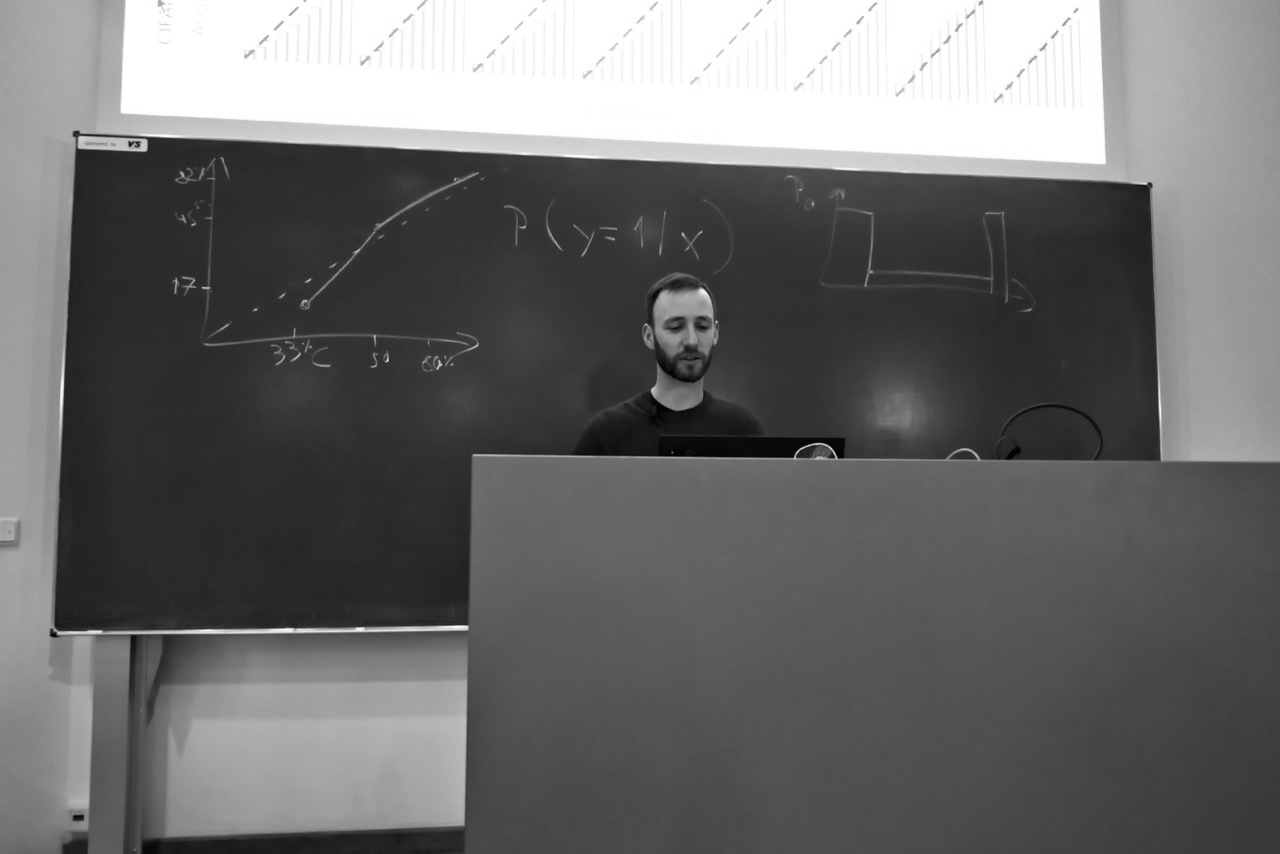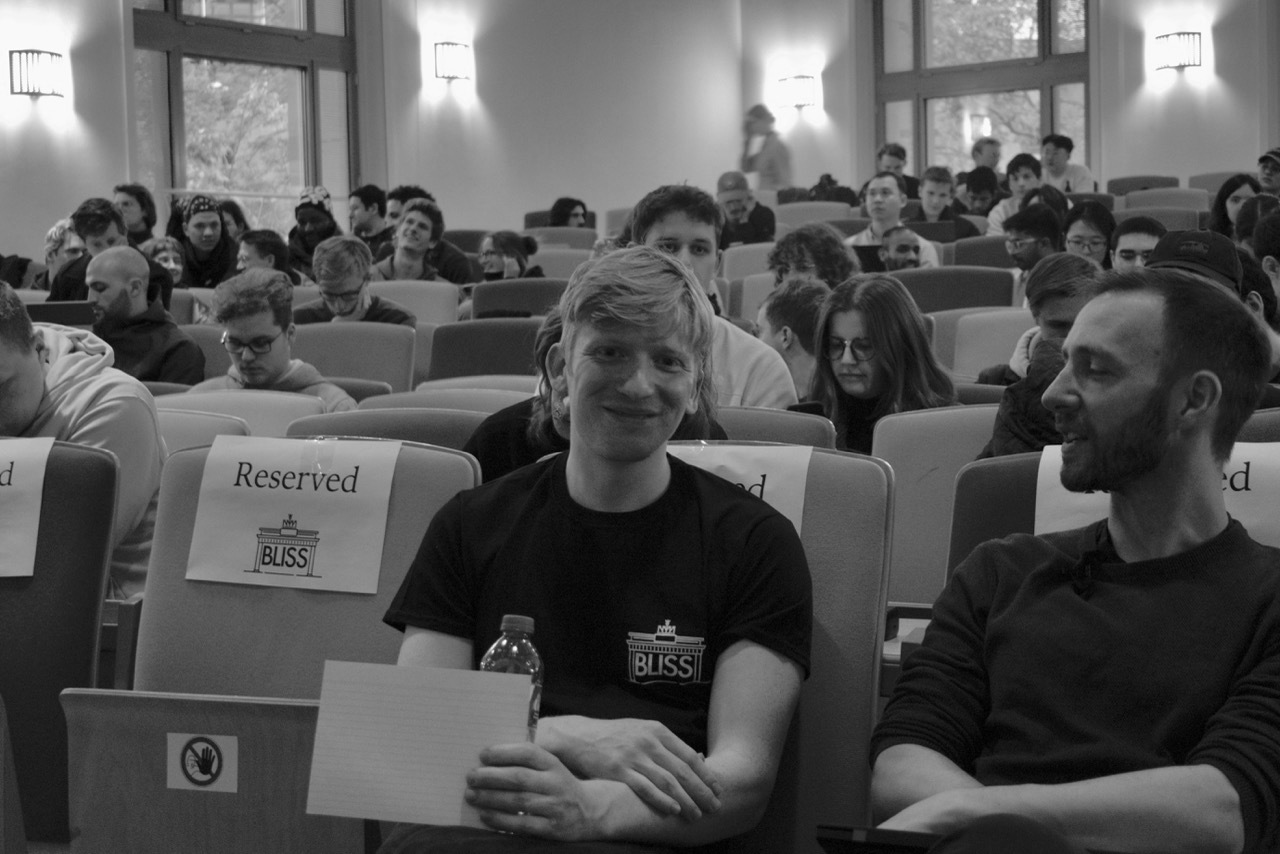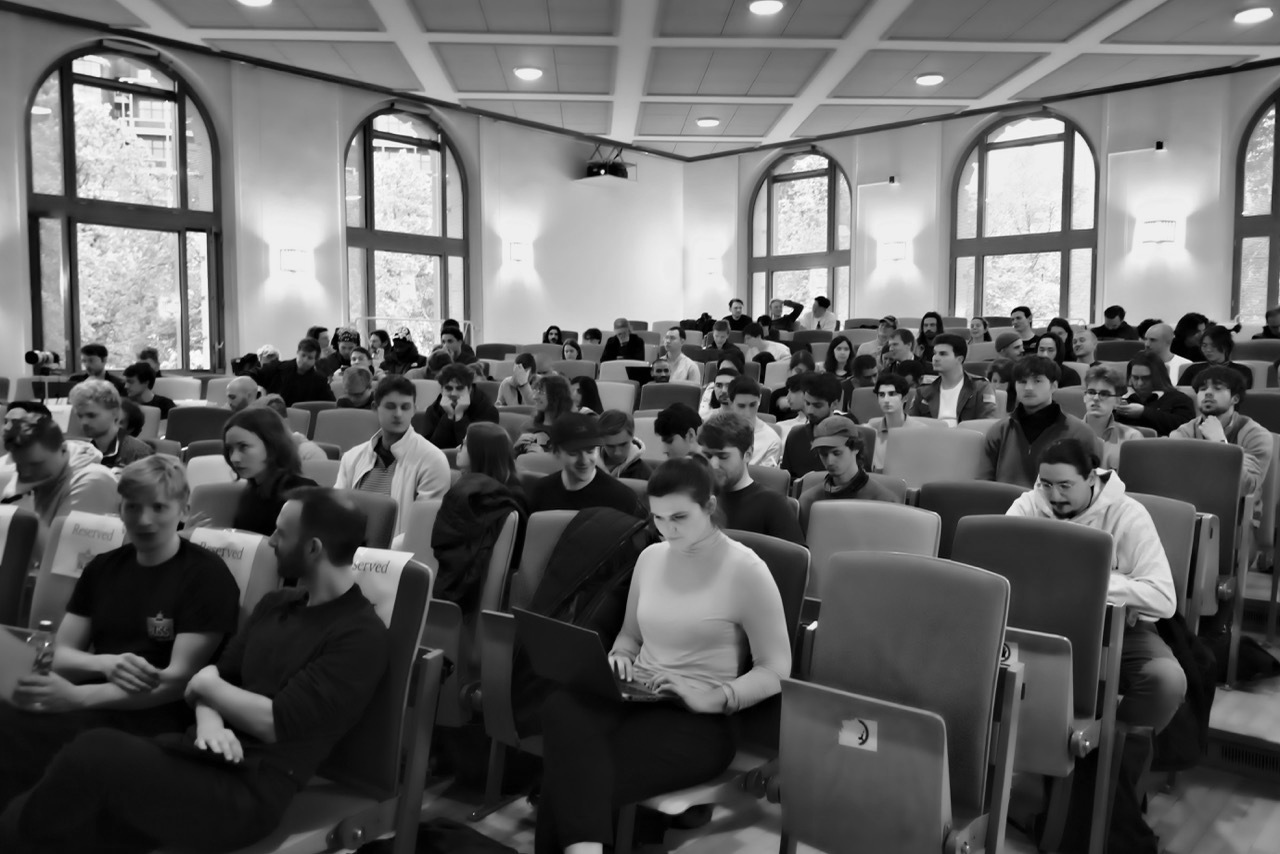By Jannik Kossen (Meta FAIR)
Date: July 15, 2025
Jannik is an AI research scientist at Meta FAIR, building LLMs for code generation. He worked at the University of Oxford on uncertainty and data-efficiency in vision and language models, which will culminate in the awarding of his PhD. He previously studied Physics in Bremen and Heidelberg, has interned at Google and DeepMind, and now lives in Berlin.
Large language models can 'hallucinate' factually incorrect outputs, presenting significant risks for their adoption to high-stakes applications. Jannik will present joint work recently published in Nature (https://www.nature.com/articles/s41586-024-07421-0) on detecting hallucinations in large language models using semantic entropy, which mitigates hallucinations by quantifying the model's own uncertainty over the meaning of generations. He will also discuss a recent pre-print (https://arxiv.org/abs/2406.15927) that proposes a method to drastically reduce the cost of uncertainty quantification in LLMs by predicting semantic entropy from latent space, and he may ramble about uncertainties in LLMs more generally.




By Dr. Adel Bibi (University of Oxford)
Date: July 01, 2025
Adel Bibi is a senior researcher in machine learning and computer vision at the Department of Engineering Science since 2023, University of Oxford, a Research Member of the Common Room at Kellogg College, and a member of the ELLIS Society. Bibi is an R&D Distinguished Advisor with Softserve.
We will navigate through the alignment challenges and safety considerations of LLMs, addressing both their limitations and capabilities, particularly focusing on techniques related to instruction prefix tuning and their theoretical limitations toward alignment. Additionally, I will discuss fairness across languages in common tokenizers used in LLMs. Finally, I will address safety considerations for agentic systems, illustrating methods to compromise their safety by exploiting seemingly minor changes, such as altering the desktop background to generate a chain of sequenced harmful actions. I will also explore the transferability of these vulnerabilities across different agents.



By Daniel Duckworth (Google DeepMind)
Date: June 17, 2025
Daniel Duckworth is a Senior Research Software Engineer at Google DeepMind
Our innate ability to reconstruct the 3D world around us from our eyes alone is a fundamental part of human perception. For computers, however, this task remained a significant challenge — until the advent of Neural Radiance Fields (NeRFs). Upon their introduction, NeRFs marked a paradigm shift in the field of novel view synthesis, demonstrating huge improvements in visual realism and geometric accuracy over prior works. The subsequent proliferation of NeRF variants has only expanded their capabilities, unlocking larger scenes, achieving even higher visual fidelity, and accelerating both training and inference. Nevertheless, NeRF is no longer the tool of choice for 3D reconstruction. Why? Join a researcher from the front lines as we explore NeRF’s foundations, dissect its strengths and weaknesses, see how the field has evolved, and explore the future of novel view synthesis.



By Dr. Pierre Fernandez (FAIR Meta AI)
Date: June 03, 2025
We are excited to feature Dr. Pierre Fernandez, Research Scientist at Meta AI, who will discuss `Watermark Anything with Localized Messages`, lasting approximately 45 minutes.
Invisible image watermarking embeds information into image pixels in a way that remains imperceptible to the human eye but can still be retrieved even after significant image editing. However, traditional methods struggle when dealing with small, localized watermarked areas—something that often happens in real-world scenarios where images come from different sources or undergo modifications. In this talk, after a brief introduction to image watermarking, we’ll explore an approach designed to tackle this issue. Watermark Anything (ICLR 2025) reframes image watermarking as a segmentation problem. We’ll walk through the motivation behind this idea, how we developed and trained the model, the challenges we faced, and the final results.
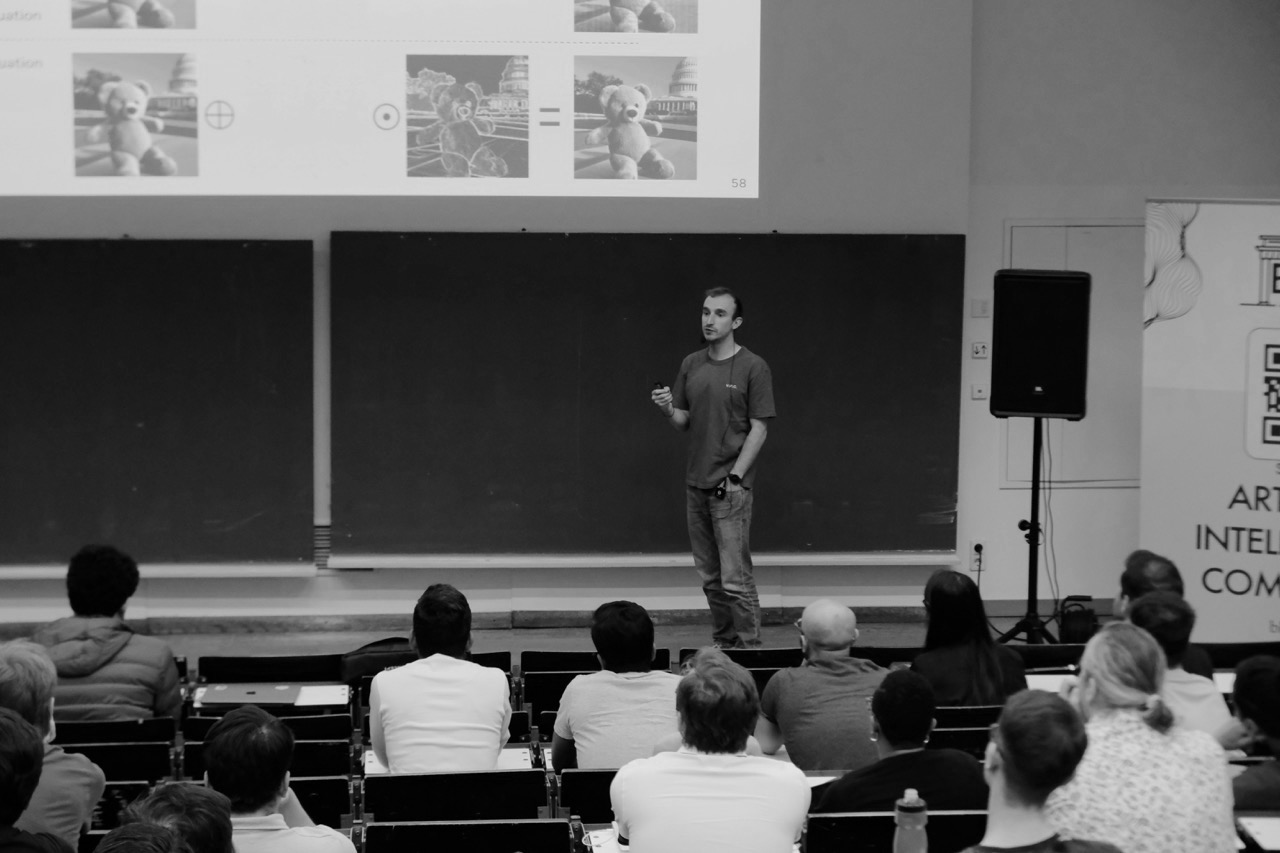
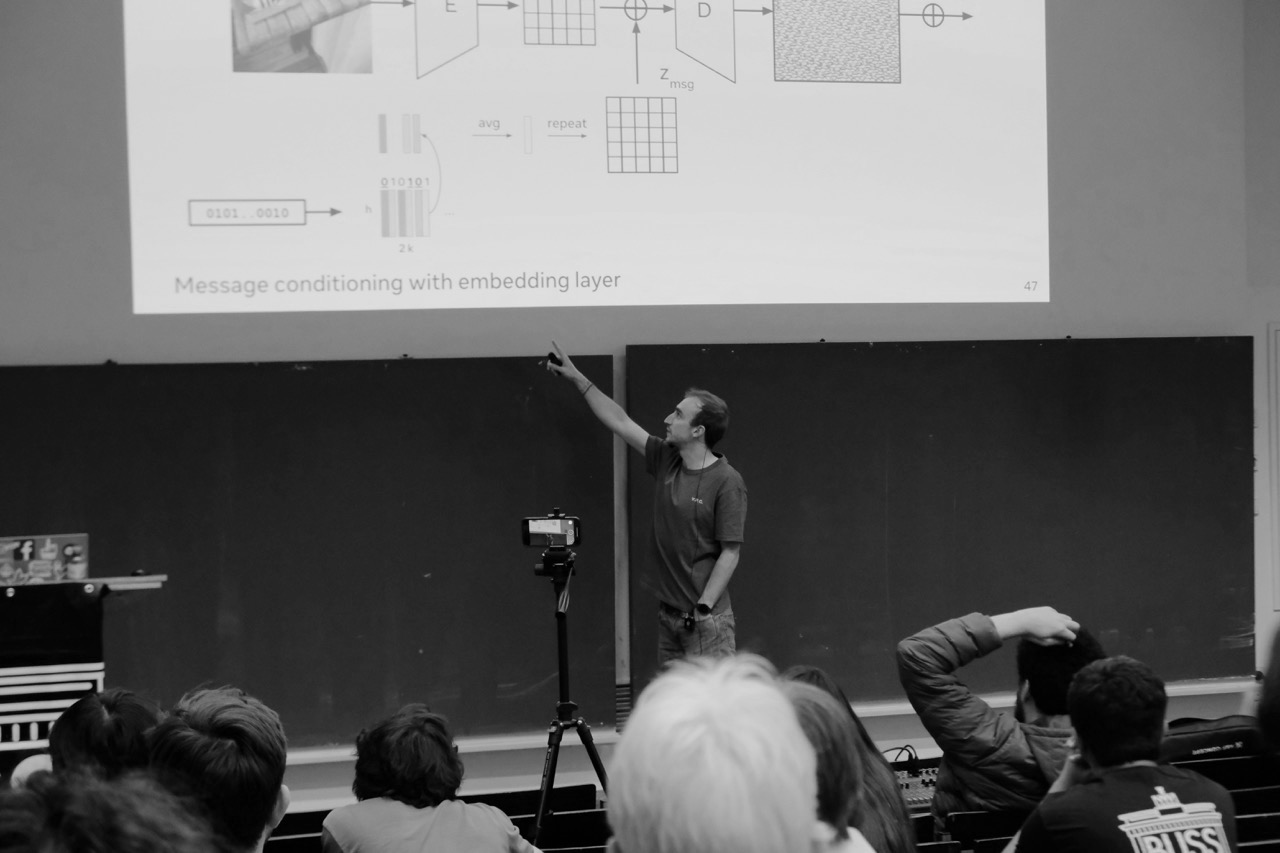
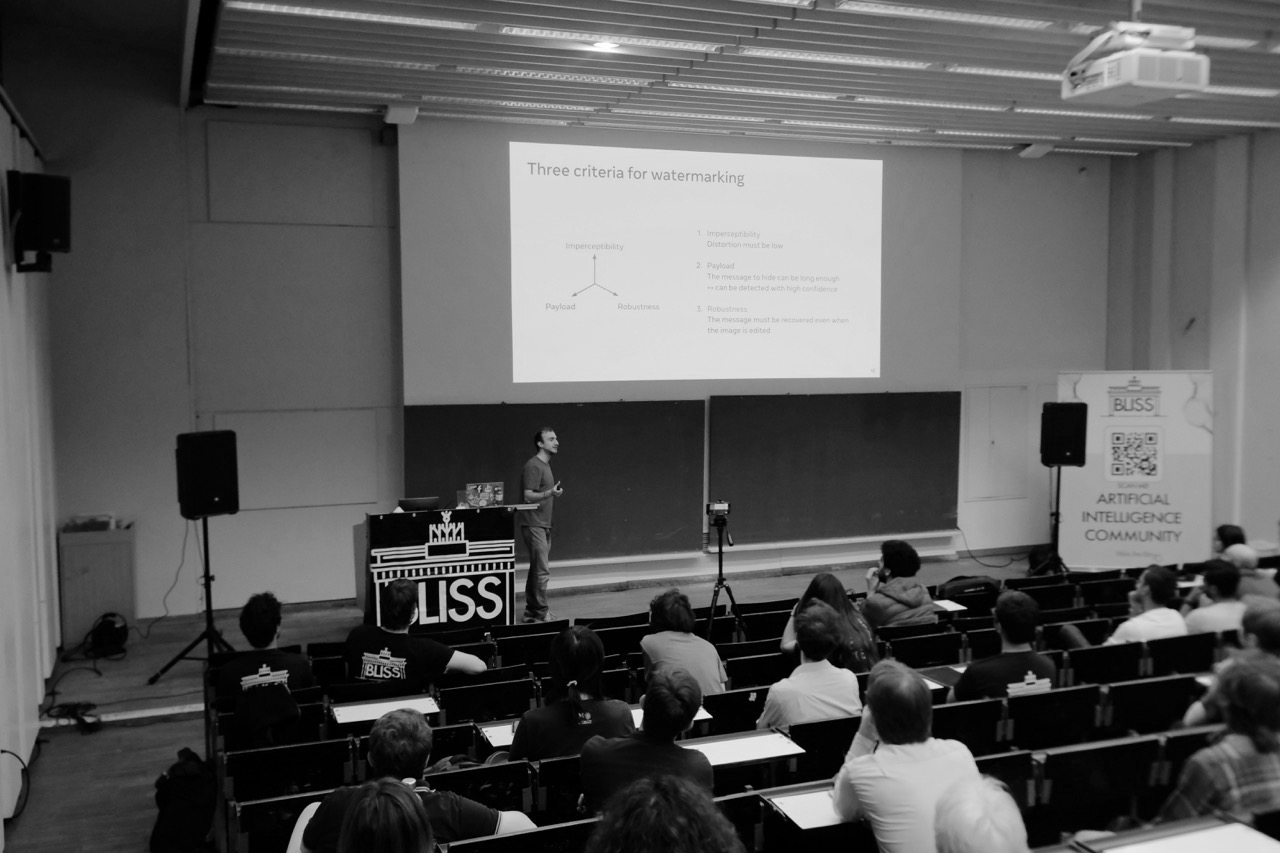
By Dr. Yu Xie and Dr. Michael Gastegger (Microsoft AI4Science)
Date: May 20, 2025
Dr. Yu Xie and Dr. Michael Gastegger are both Senior Researchers at Microsoft AI4Science.
Following the sequence and structure revolutions, predicting the dynamical mechanisms of proteins that implement biological function remains an outstanding scientific challenge. Several experimental techniques and molecular dynamics (MD) simulations can, in principle, determine conformational states, binding configurations and their probabilities, but suffer from low throughput. Here we develop a Biomolecular Emulator (BioEmu), a generative deep learning system that can generate thousands of statistically independent samples from the protein structure ensemble per hour on a single graphical processing unit. By leveraging novel training methods and vast data of protein structures, over 200 milliseconds of MD simulation, and experimental protein stabilities, BioEmu’s protein ensembles represent equilibrium in a range of challenging and practically relevant metrics. Qualitatively, BioEmu samples many functionally relevant conformational changes, ranging from formation of cryptic pockets, over unfolding of specific protein regions, to large-scale domain rearrangements. Quantitatively, BioEmu samples protein conformations with relative free energy errors around 1 kcal/mol, as validated against millisecond-timescale MD simulation and experimentally-measured protein stabilities. By simultaneously emulating structural ensembles and thermodynamic properties, BioEmu reveals mechanistic insights, such as the causes for fold destabilization of mutants, and can efficiently provide experimentally-testable hypotheses.
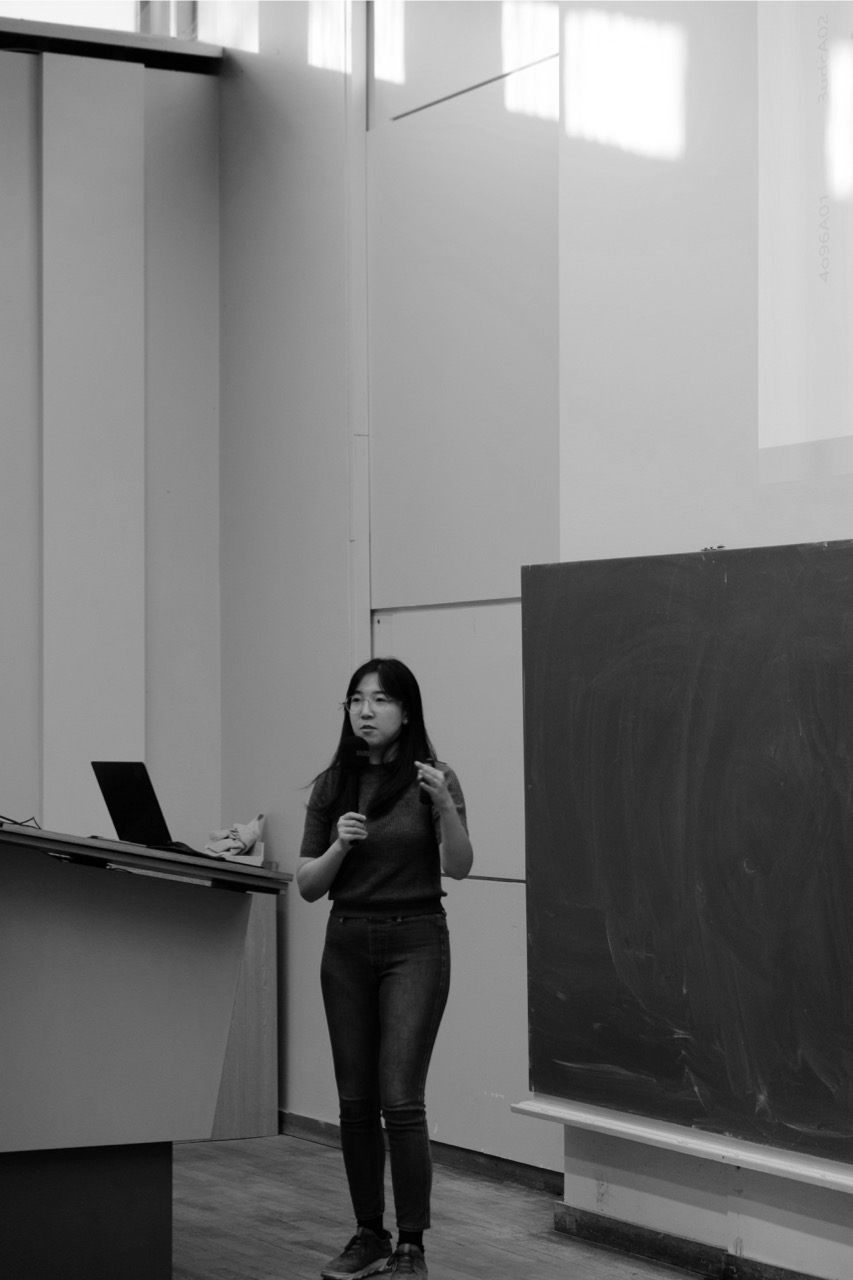
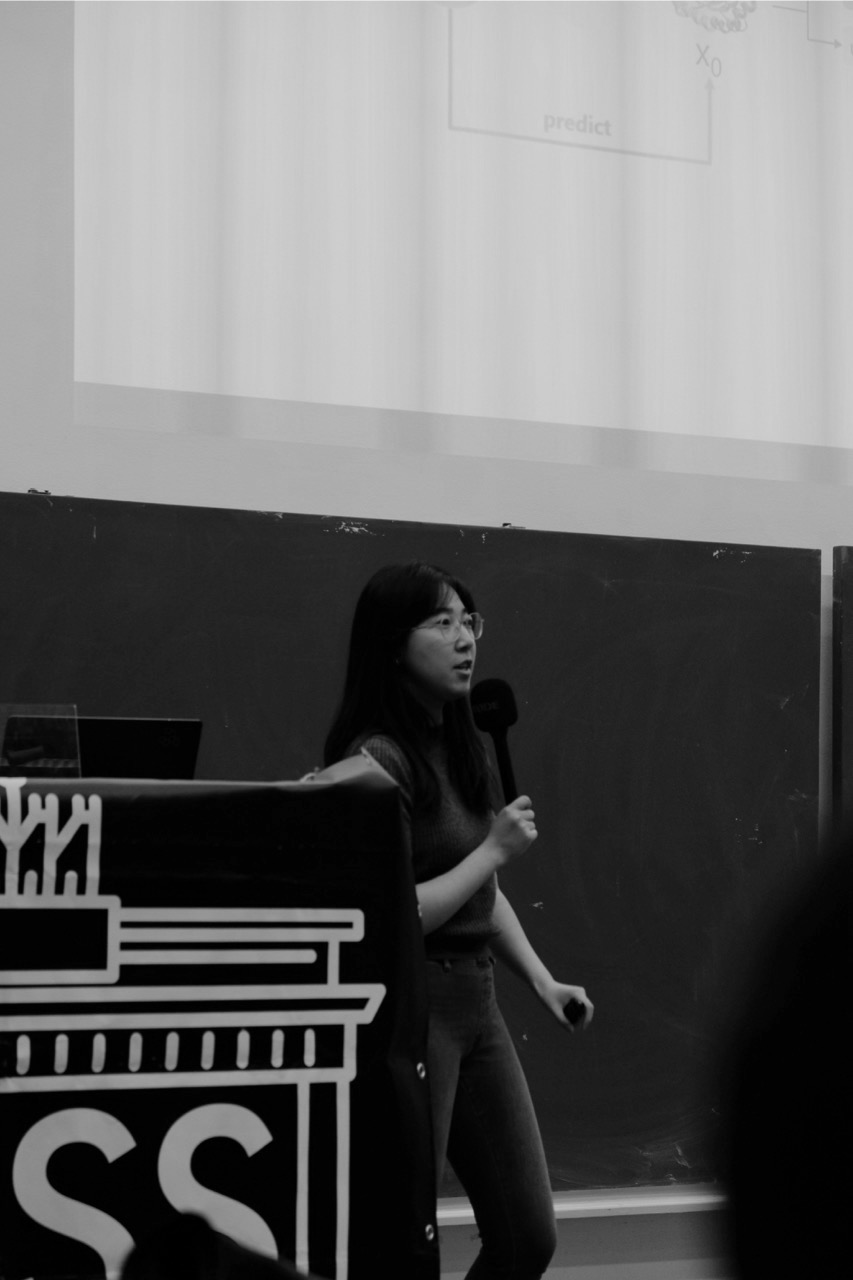
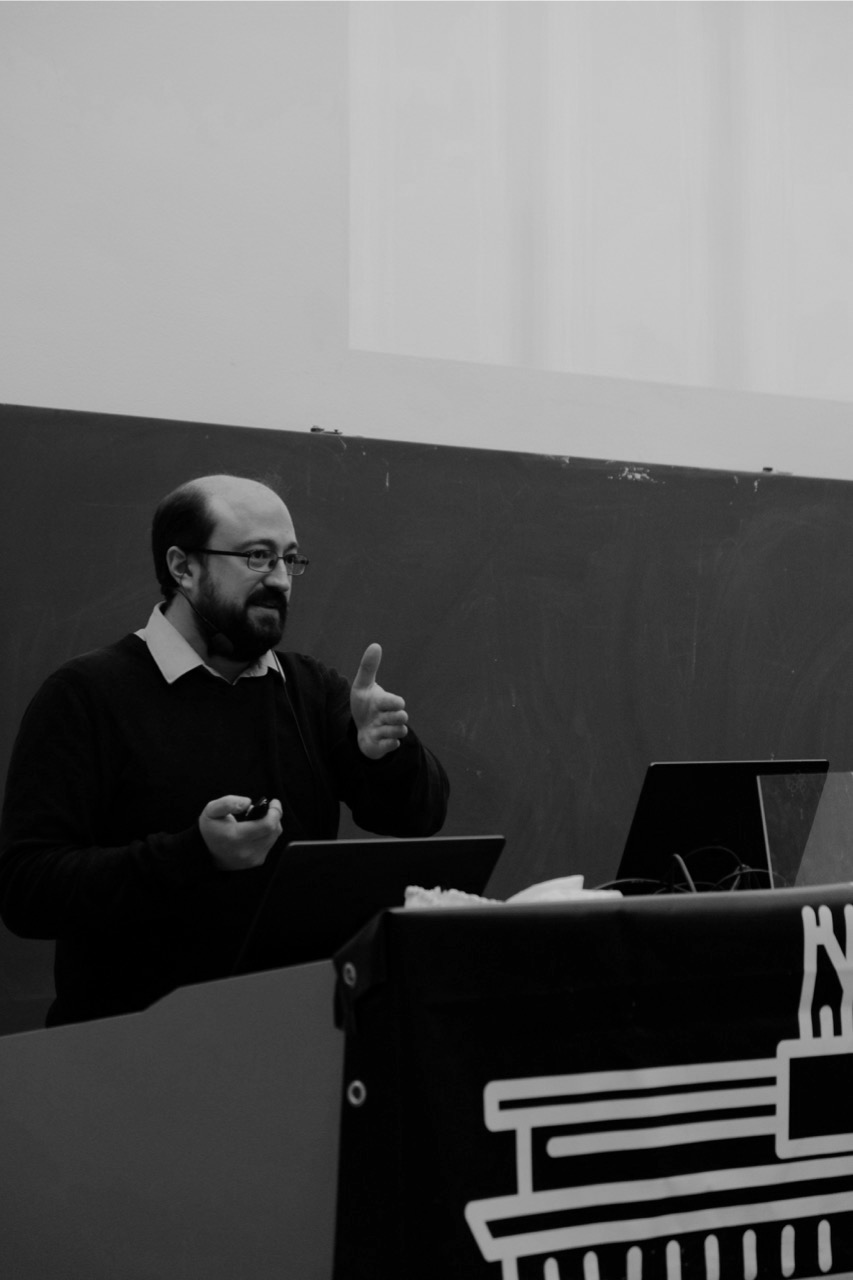
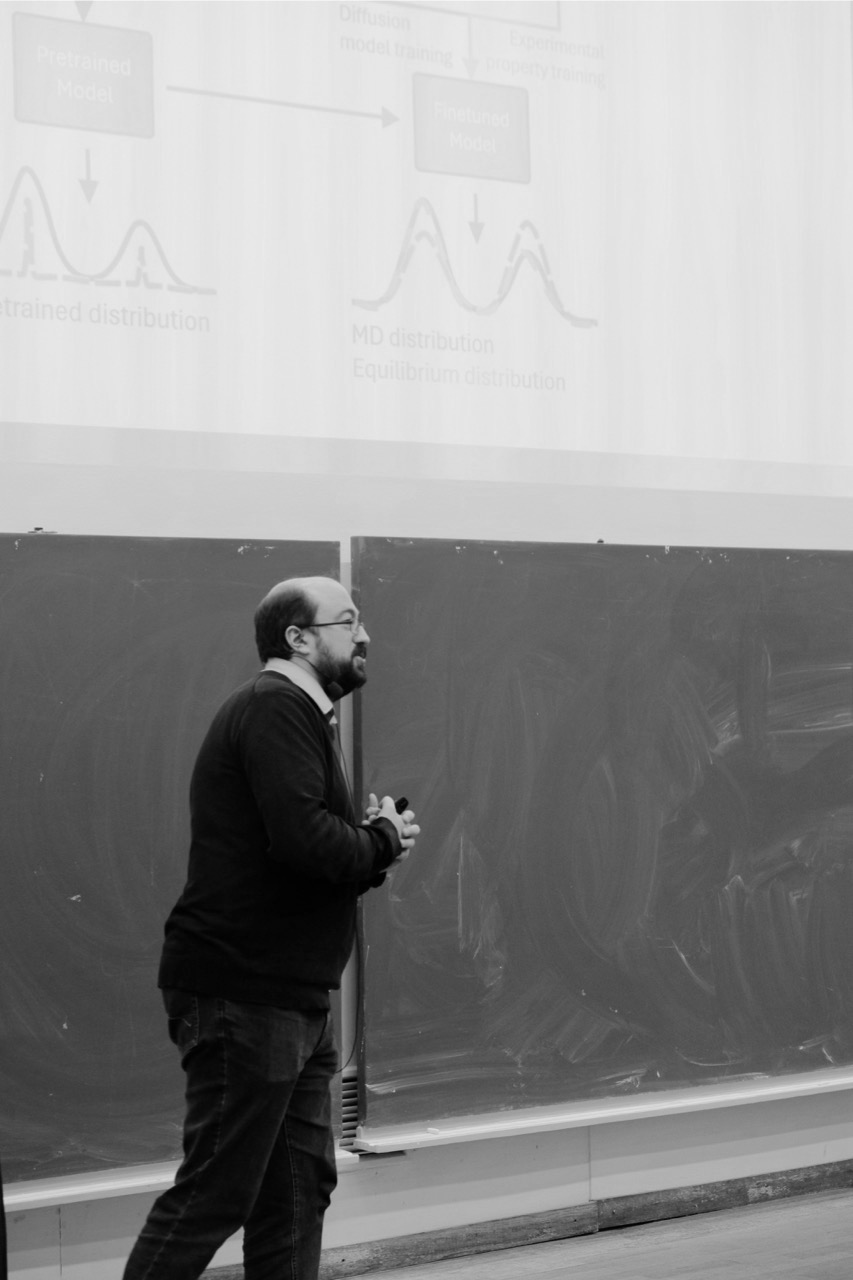
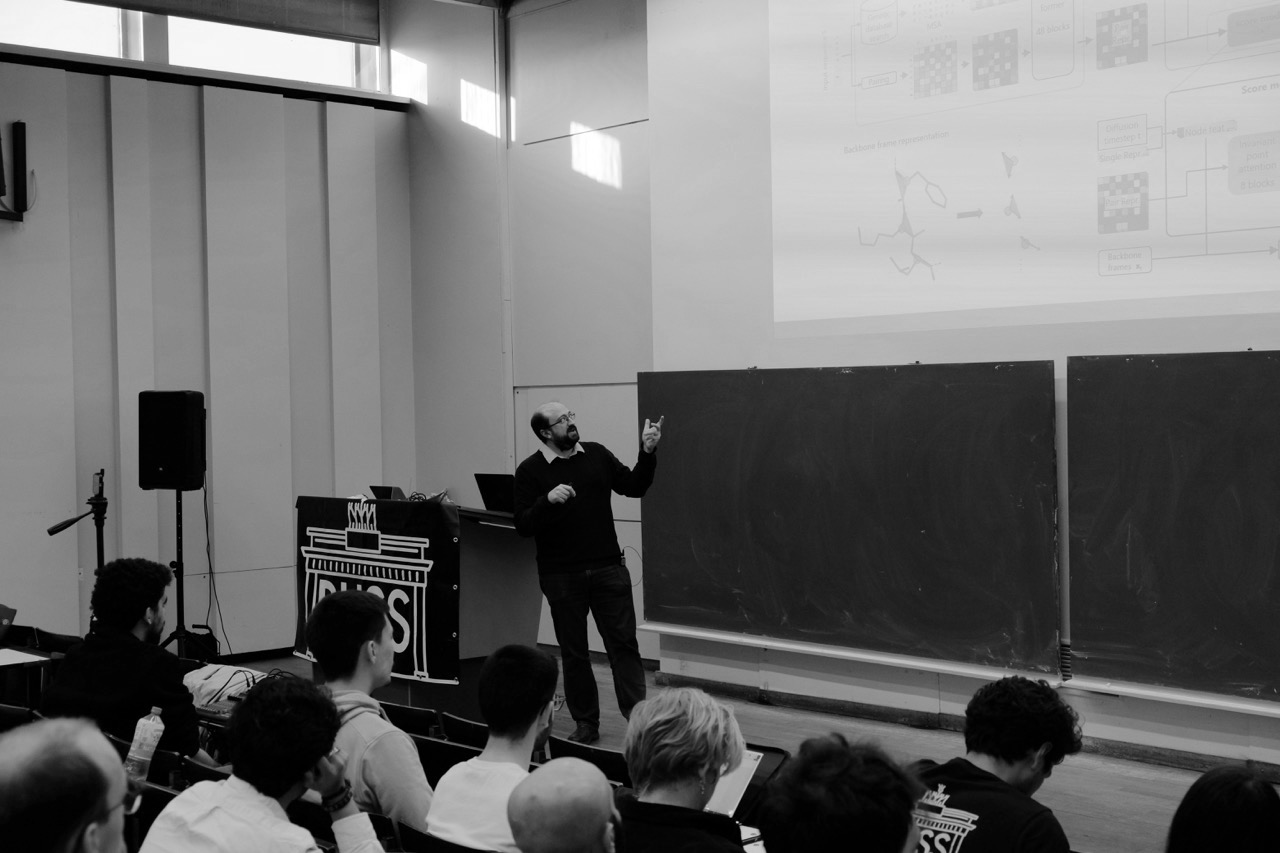
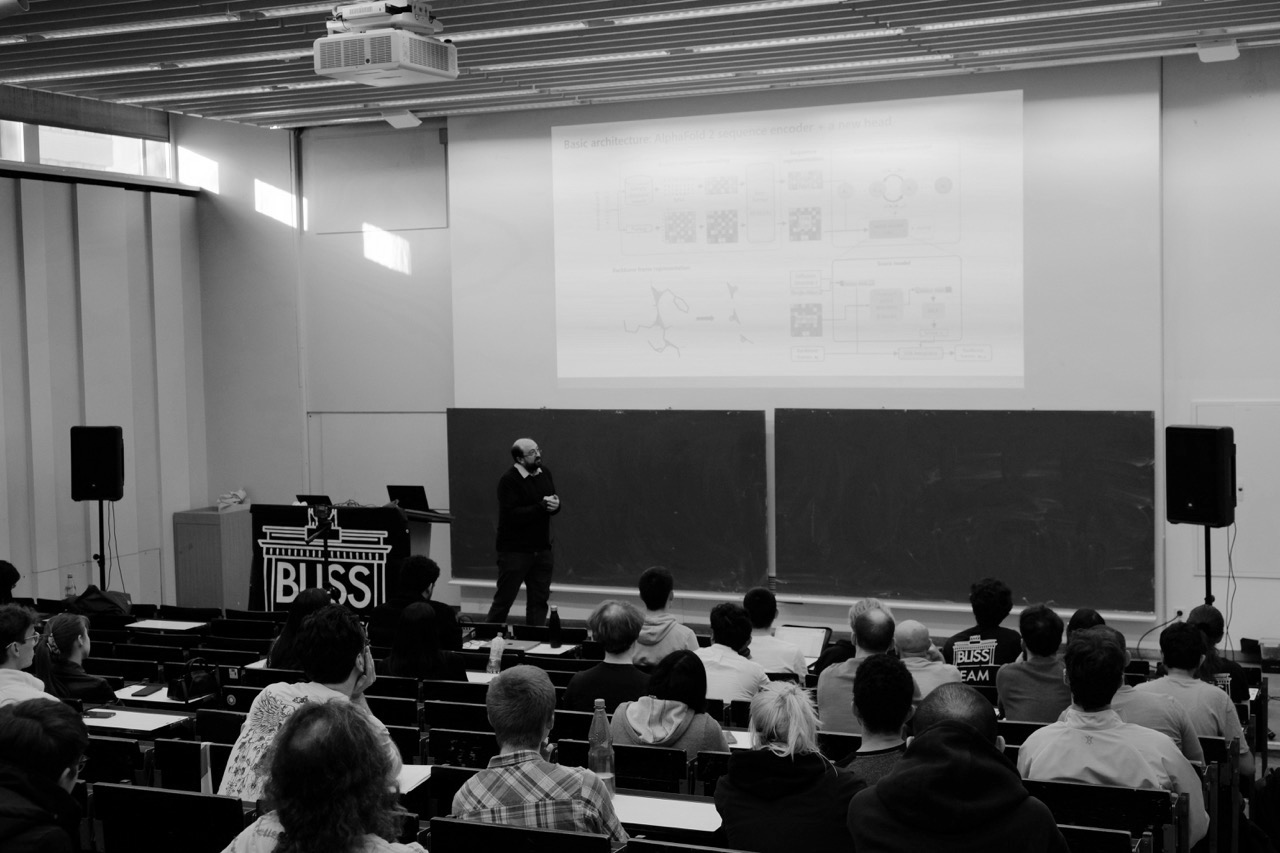
By Timothée Darcet (Meta AI, Inria)
Date: May 06, 2025
Timothée Darcet is a PhD student at Meta AI and Inria.
Masked Image Modeling (MIM) offers a promising approach to self-supervised representation learning, however existing MIM models still lag behind the state-of-the-art. In this talk, we systematically analyze target representations, loss functions, and architectures, to present CAPI - a novel pure-MIM framework that relies on the prediction of latent clusterings. Our approach leverages a clustering-based loss, which is stable to train, and exhibits promising scaling properties. Our ViT-L backbone, CAPI, achieves 83.8% accuracy on ImageNet and 32.1% mIoU on ADE20K with simple linear probes, substantially outperforming previous MIM methods and approaching the performance of the current state-of-the-art, DINOv2.
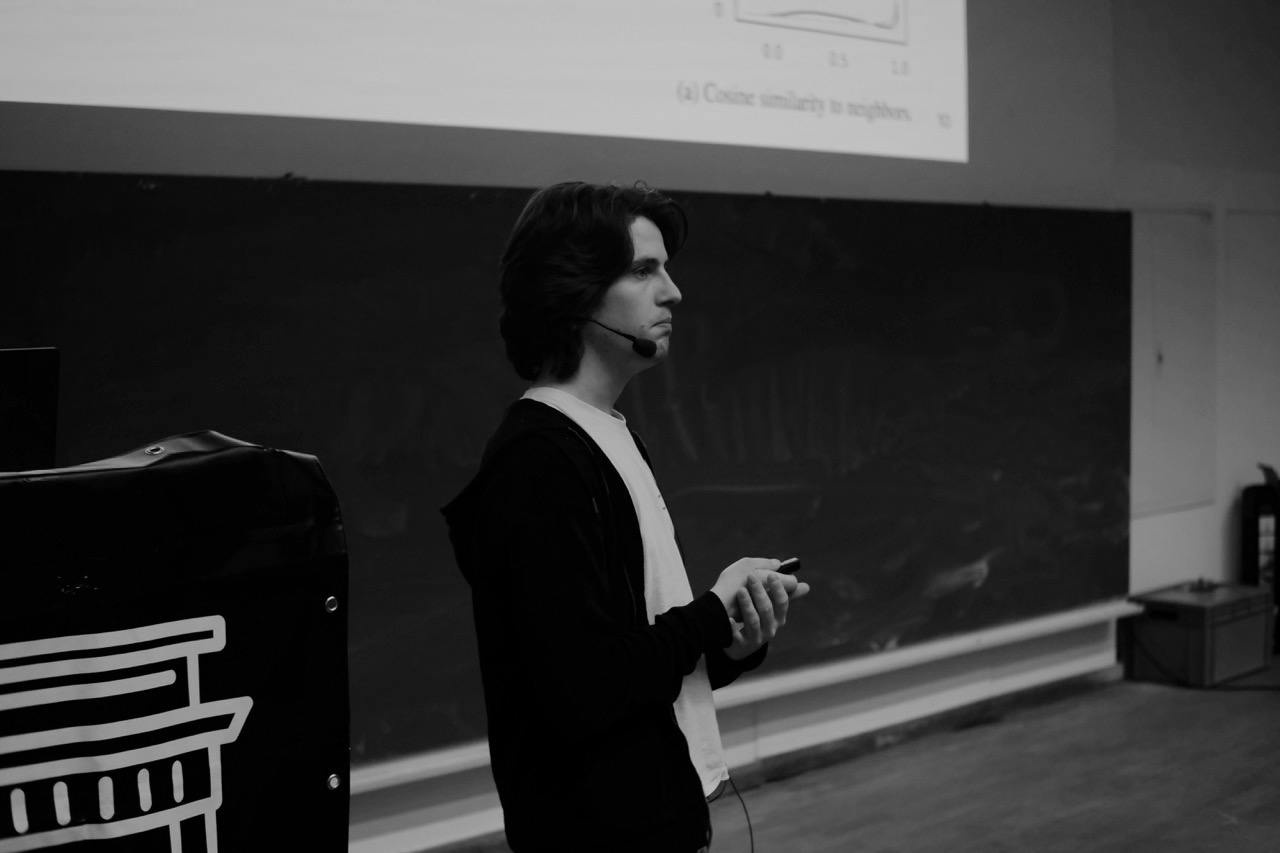
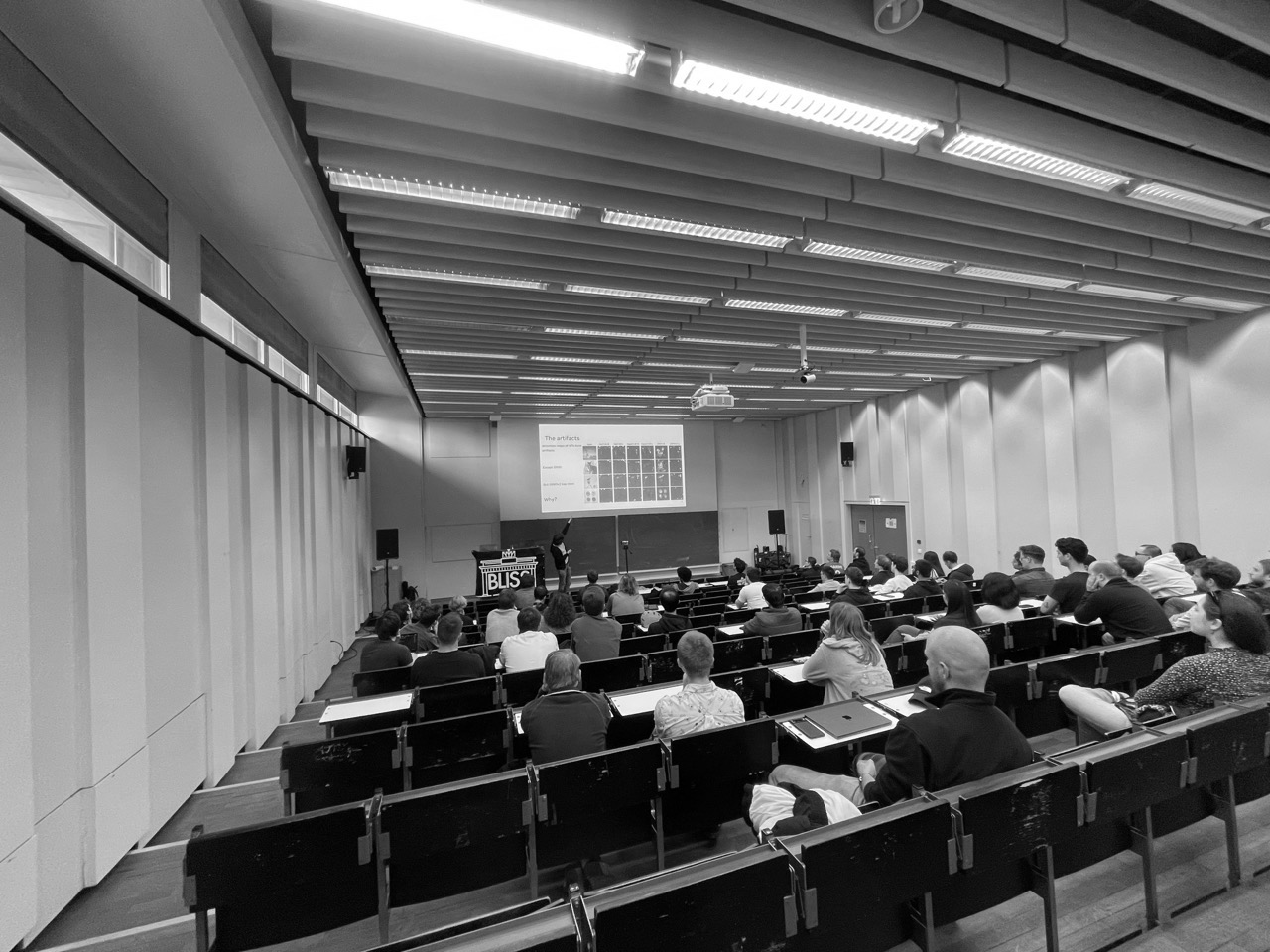
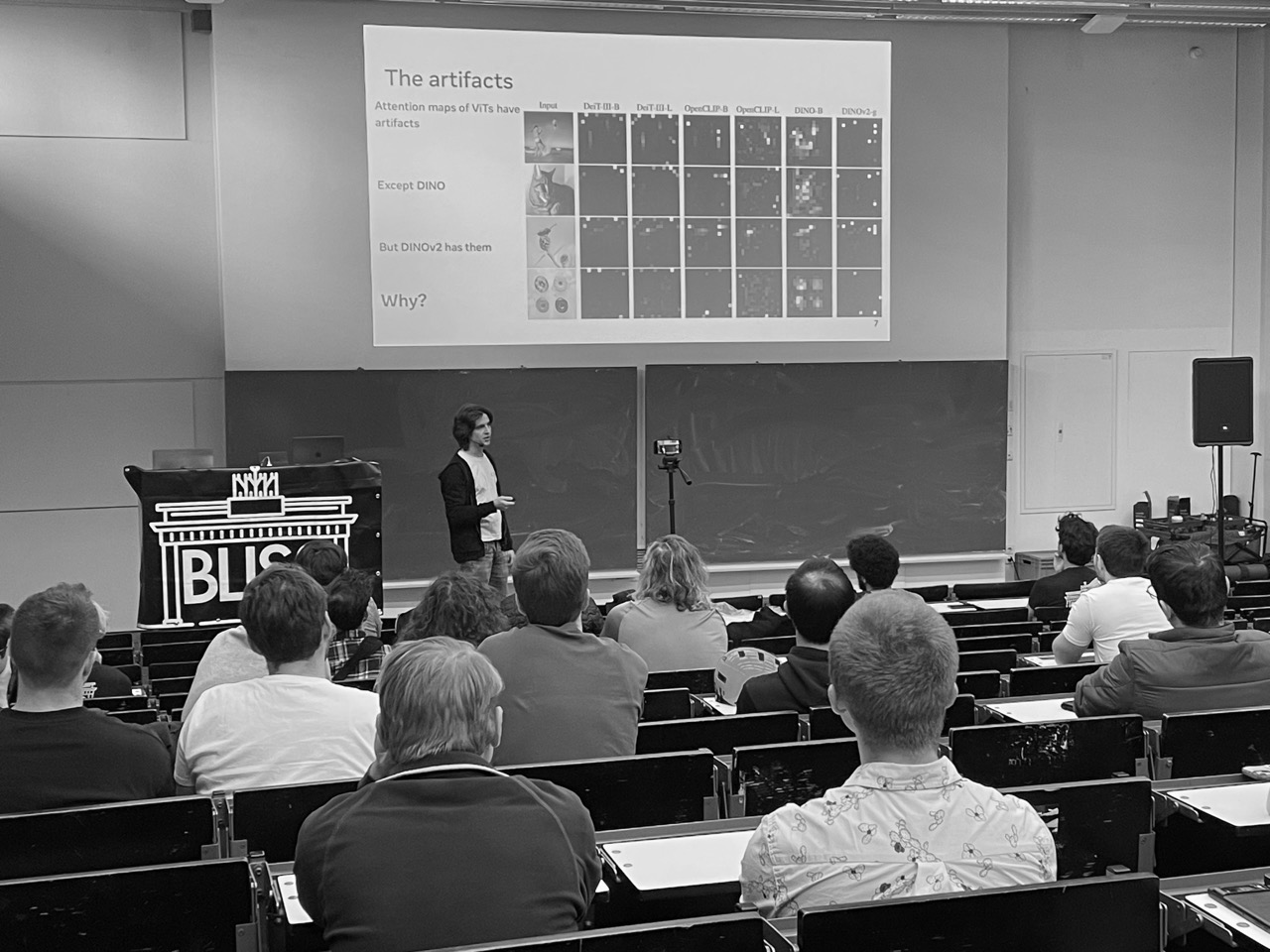
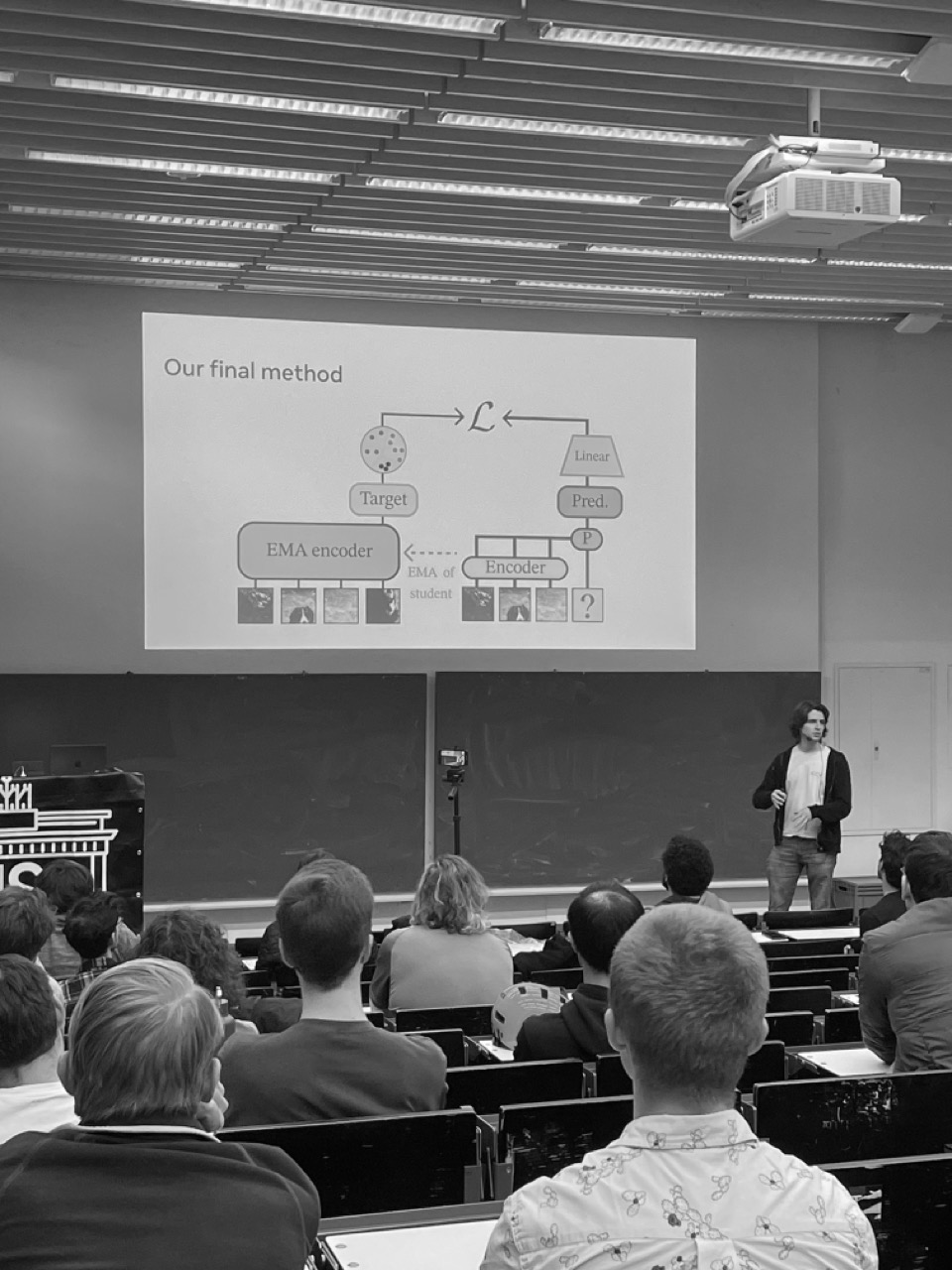
By Dr. Martin Genzel (Merantix Momentum)
Date: April 22, 2025
Dr. Martin Genzel is a Senior Research Engineer at Merantix Momentum.
The widespread adoption of Foundation Models, especially LLMs, is often hindered by their substantial size and computational demands, especially in resource-limited settings. While post-training compression offers a promising avenue to mitigate these challenges, the process can feel like a "black box" for the user, requiring significant expertise and trial-and-error to find the right balance between model size and performance. This talk introduces Any Compression via Iterative Pruning (ACIP), a novel algorithmic approach designed with the user in mind. ACIP allows for intuitive and direct control over the compression-performance trade-off, akin to compressing an image. It leverages a single gradient descent run of iterative pruning to establish a global parameter ranking, from which models of any target size can be immediately materialized. ACIP demonstrates strong predictive performance on downstream tasks without costly fine-tuning. Across various open-weight LLMs, it achieves state-of-the-art compression results compared to existing factorization-based methods. Moreover, it seamlessly complements common quantization techniques for even greater compression.
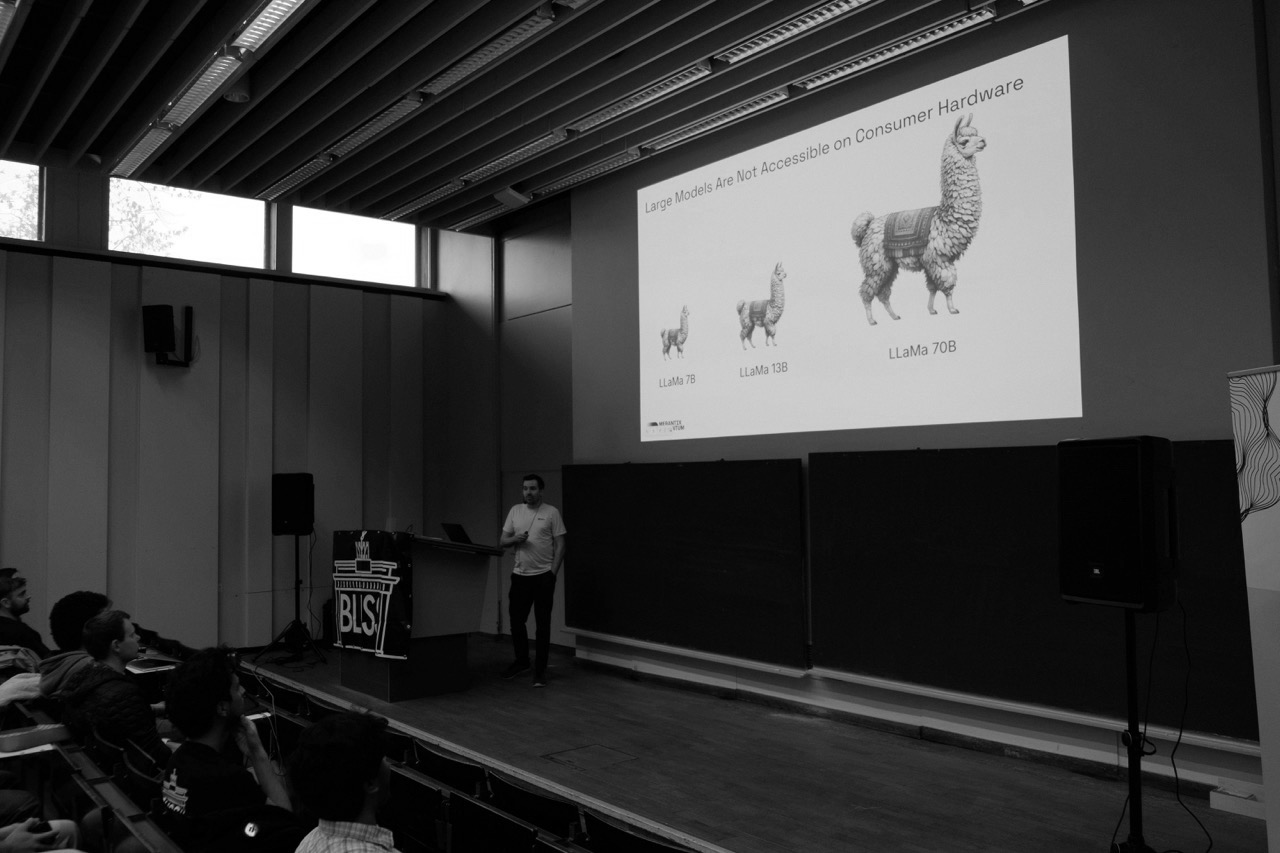
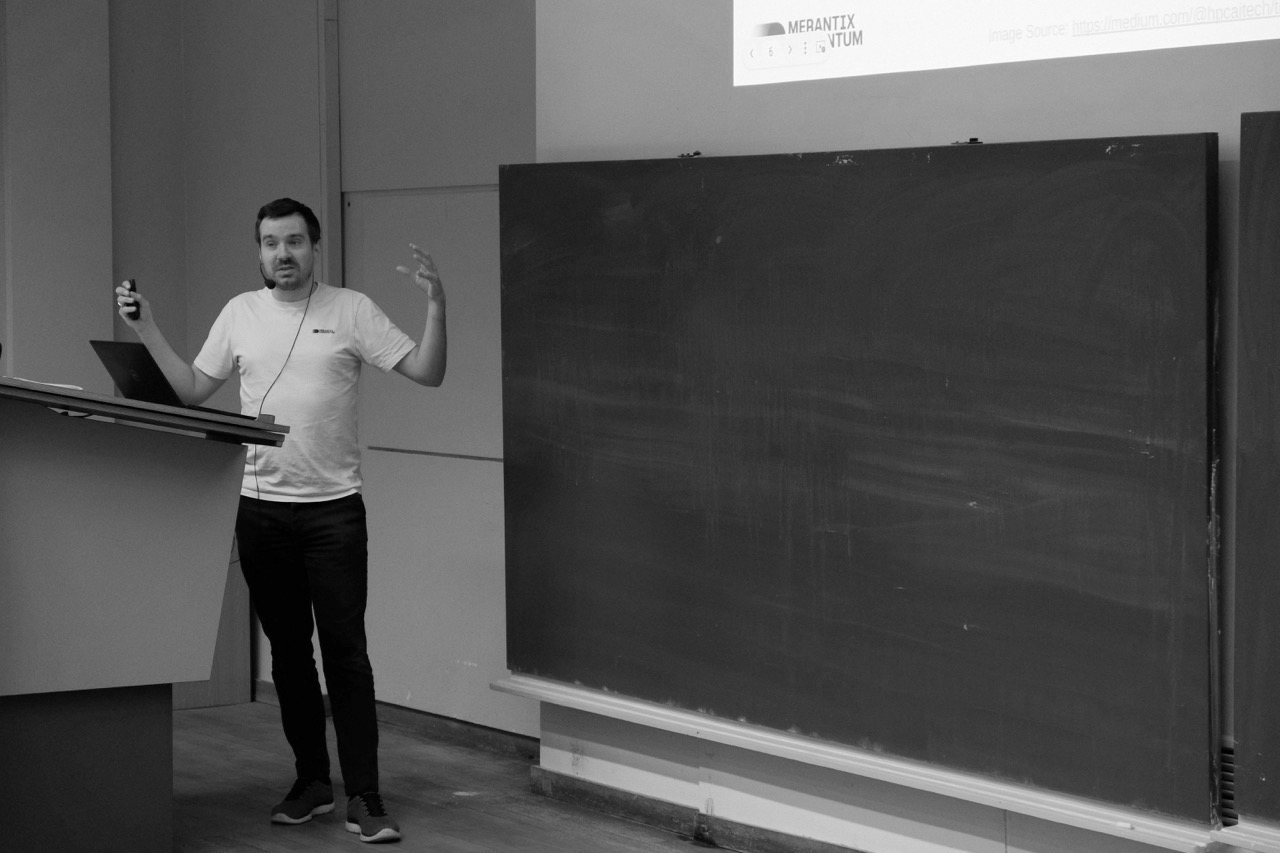
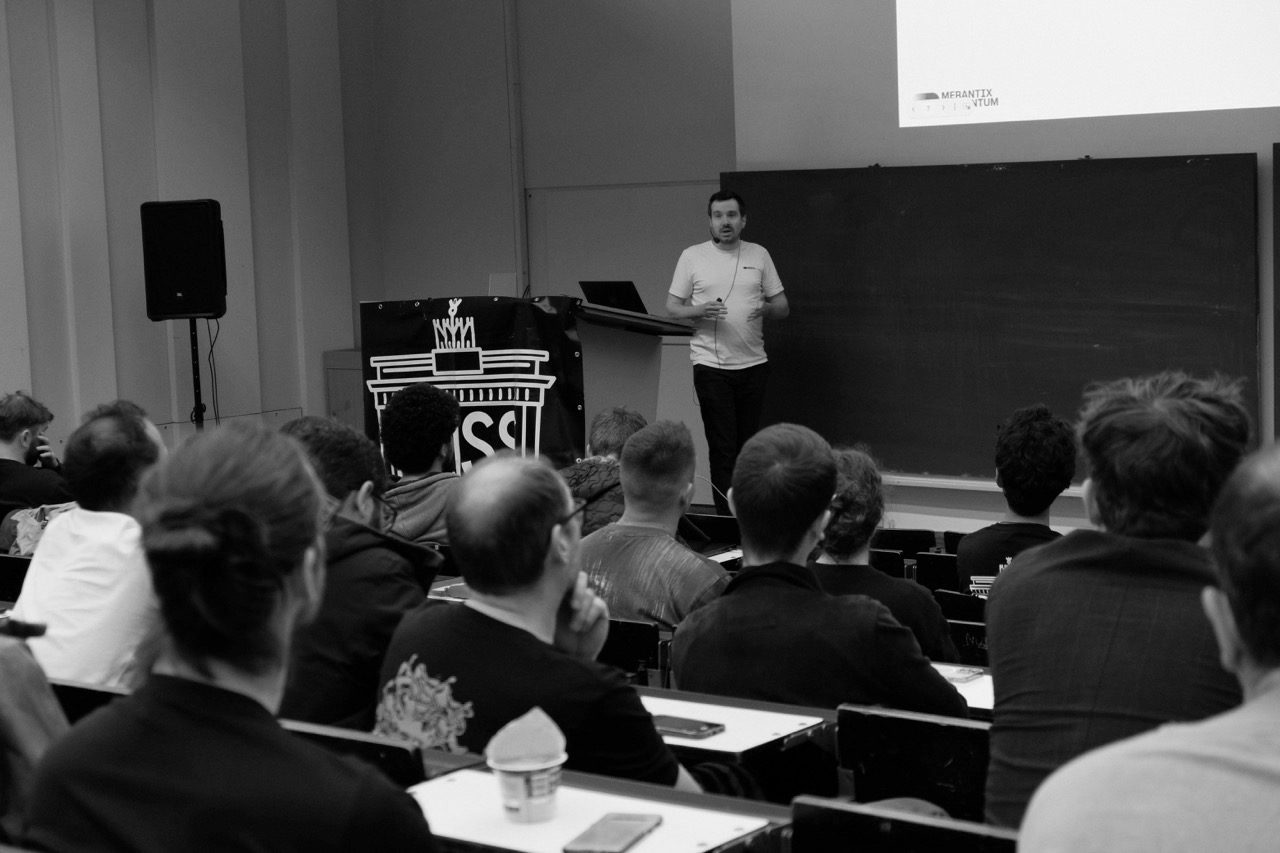
By Prof. Sanaz Mostaghim (Otto von Guericke University of Magdeburg)
Date: February 04, 2025
Prof. Sanaz Mostaghim is a full professor of Computer Science at the Otto von Guericke University of Magdeburg and Institute Director at Fraunhofer IVI. She is also a member of the Saxon Academy of Sciences. She holds a PhD in Electrical Engineering and Computer Science from the University of Paderborn (2004), where she focused on bio-inspired optimization methods. She held a postdoctoral position at ETH Zurich and completed her habilitation at Karlsruhe Institute of Technology (KIT) in 2012. In 2014, she was awarded the prestigious DFG Heisenberg professorship at KIT. Prof. Mostaghim has held visiting positions at Swinburne University (2010) and Yale University (2013). She is an active member of IEEE Computational Intelligence Society, having served as vice president (2021–2024) and in editorial roles for IEEE journals. Her research spans evolutionary optimization, AI, and self-organized systems.
Decision-making is a fundamental aspect of intelligent systems, from autonomous robots to complex optimization problems in science and engineering. This talk provides an overview of research on computational decision-making, focusing on bio-inspired optimization, multi-objective evolutionary algorithms, and AI-driven strategies. It explores how these methods enhance decision processes in dynamic and uncertain environments, with applications ranging from robotics to transportation and infrastructure. The talk highlights the role of AI in developing efficient, adaptive, and explainable decision-making systems.
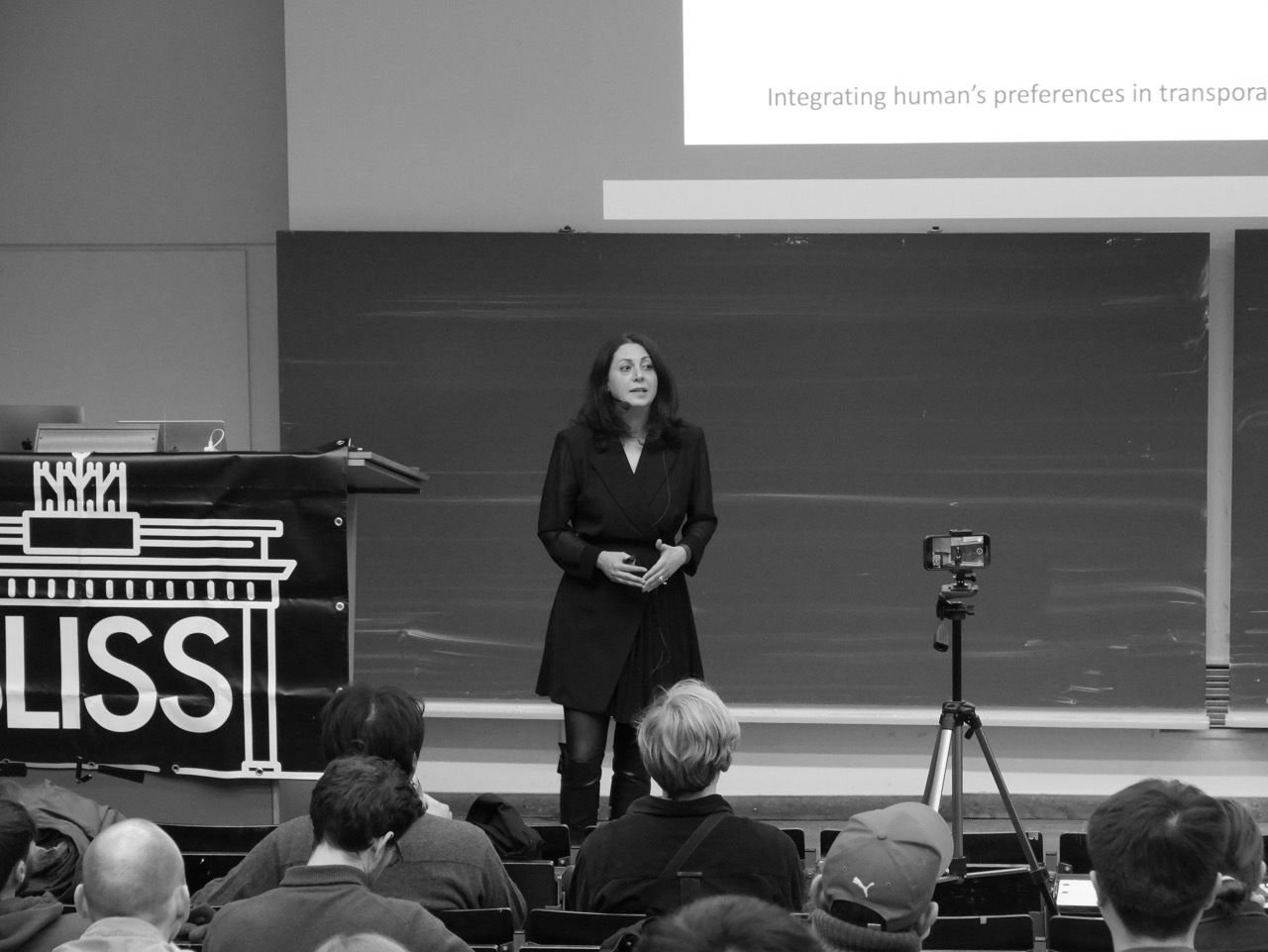
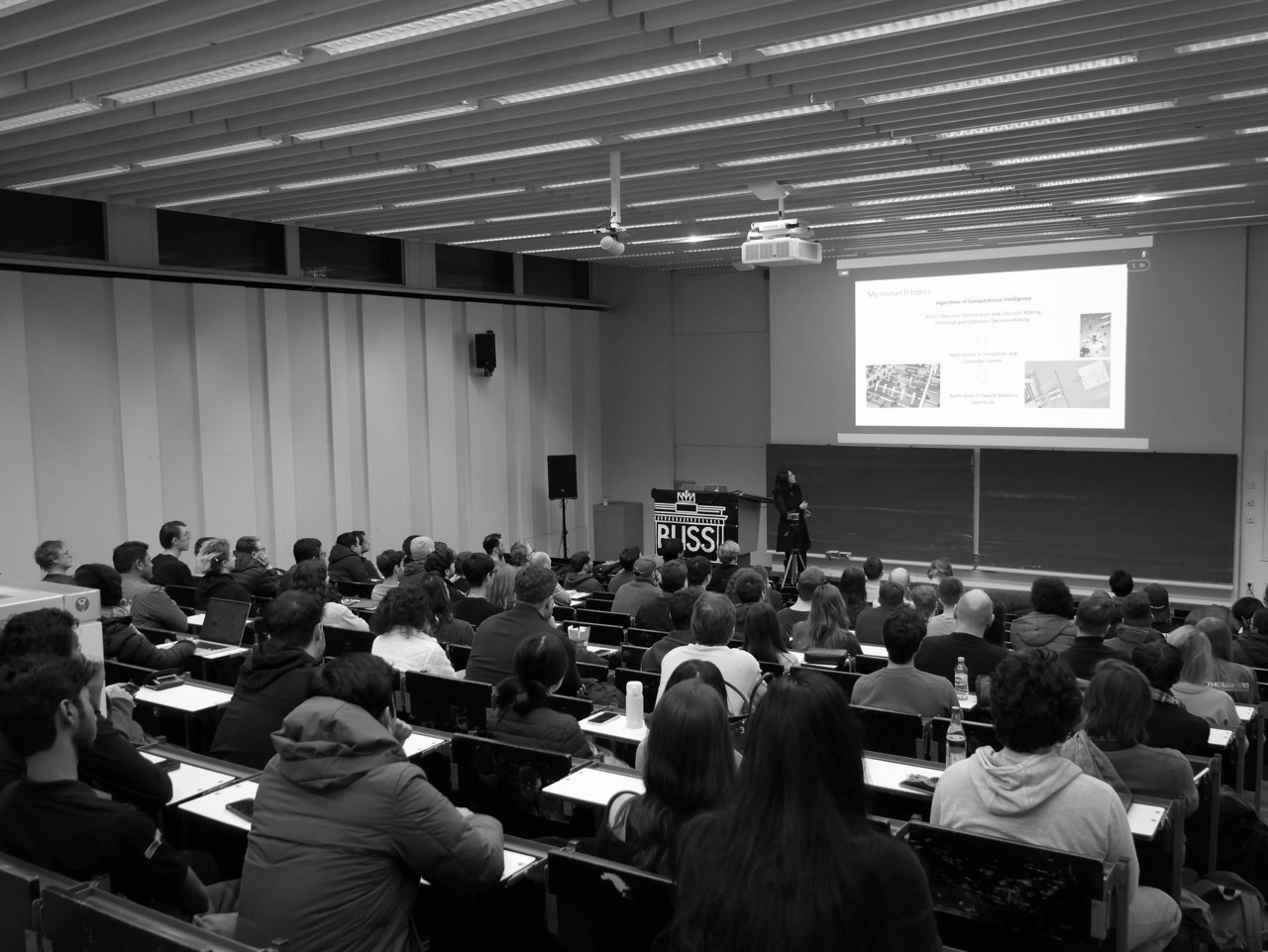
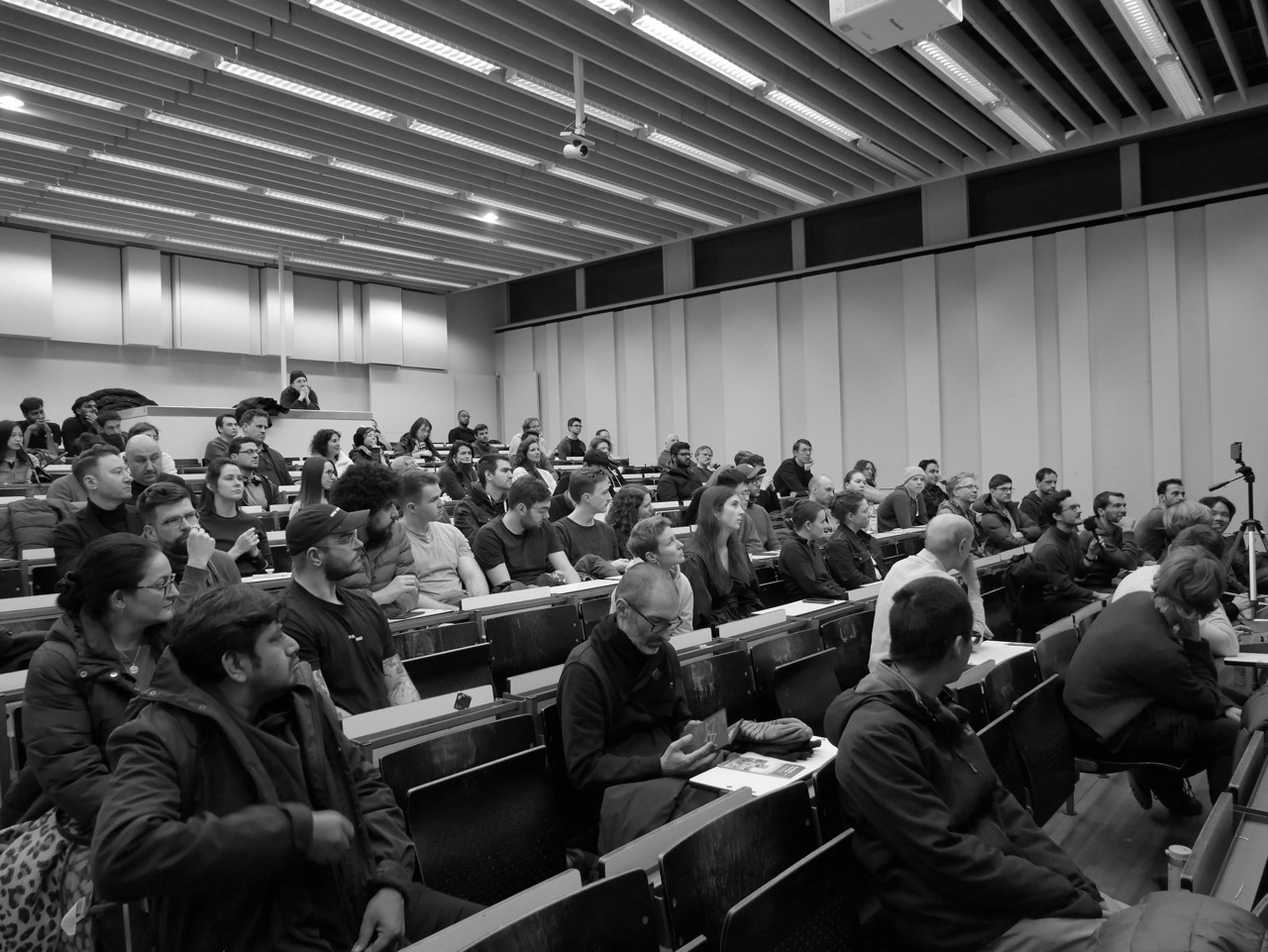
By Prof. Sven Wang (HU Berlin)
Date: January 21, 2025
Prof. Sven Wang is an assistant professor for Mathematical Statistics and Stochastics at the Humboldt University of Berlin. He previously studied mathematics at LMU Munich and Cambridge University and holds a PhD in Mathematical Statistics from Cambridge University. Before he started his position as an assistant professor here in Berlin, he spent two years as a Postdoc at the Massachusetts Institute of Technology (MIT).
Many data collection processes in natural scientific settings are described by partial differential equations (PDEs) and stochastic differential equations (SDEs). In these settings, key statistical tasks such as the estimation of unknown high-dimensional parameters, prediction and uncertainty quantification have given rise to sophisticated frequentist and Bayesian statistical methodology. Recently, 'Scientific Machine Learning' has also played a big role in inferring complex relationships from data. In this talk, we discuss recent mathematical results in this broad context. In particular, we discuss dimension-free statistical convergence results for regression of 'operators' with neural networks, and we discuss the computational complexity of sampling from high-dimensional posterior distributions. If time permits, we will also discuss some mathematical foundations for PDE and SDE-based generative AI models.
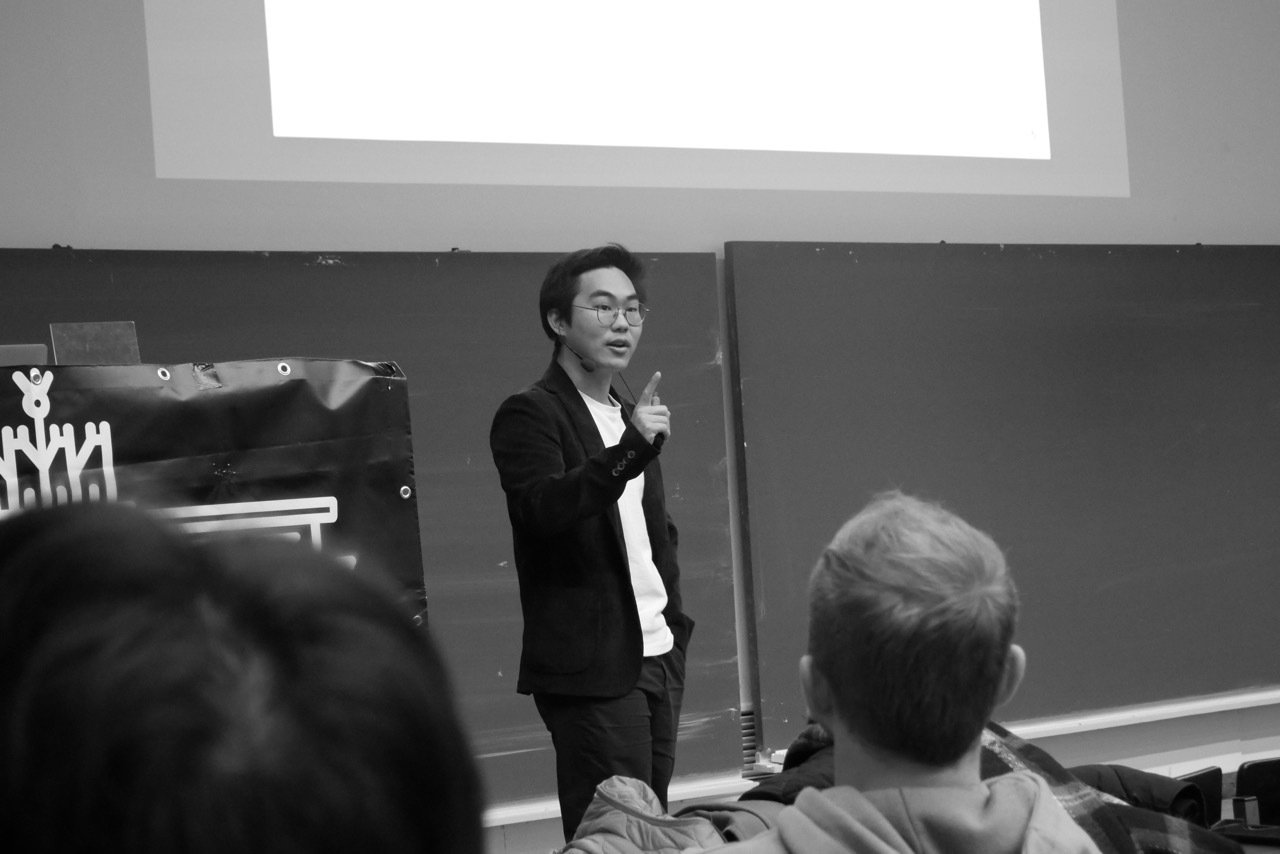
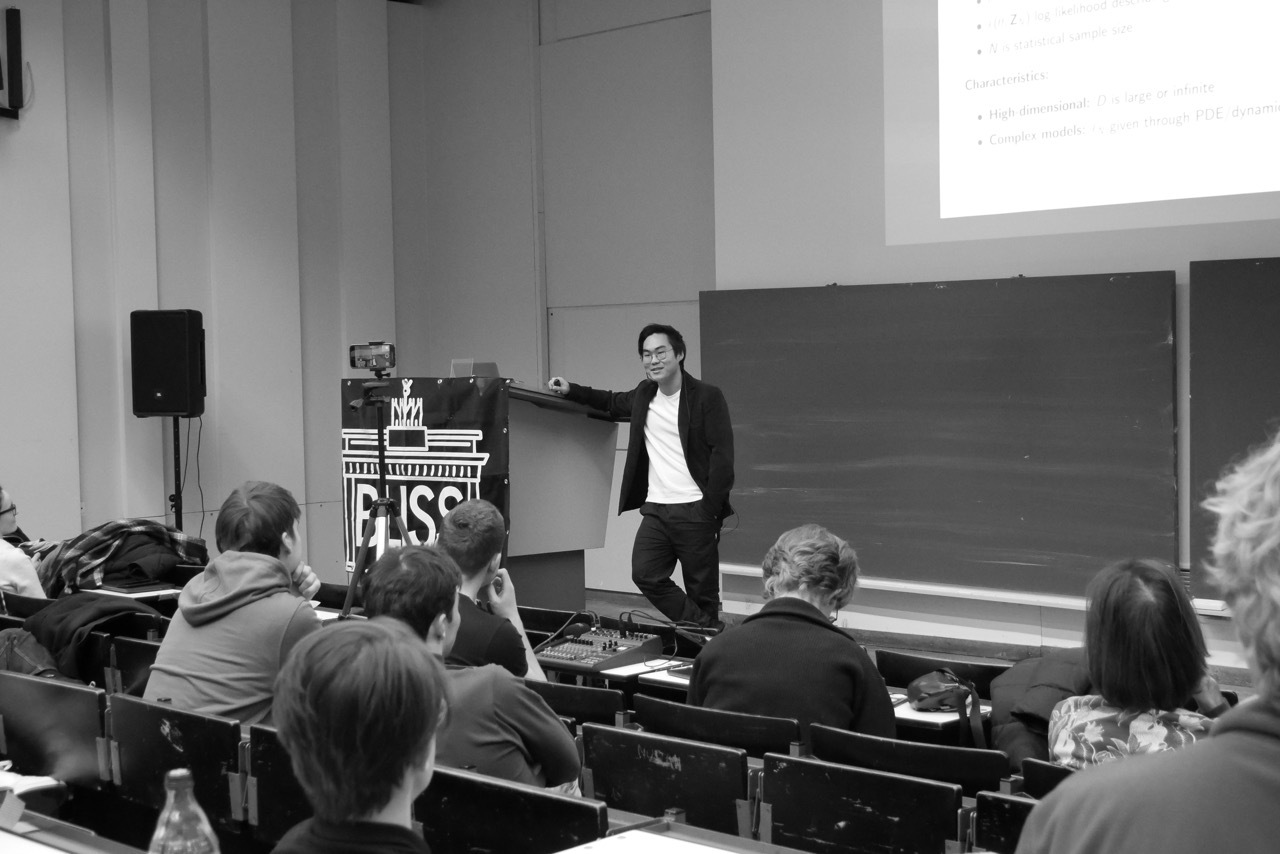
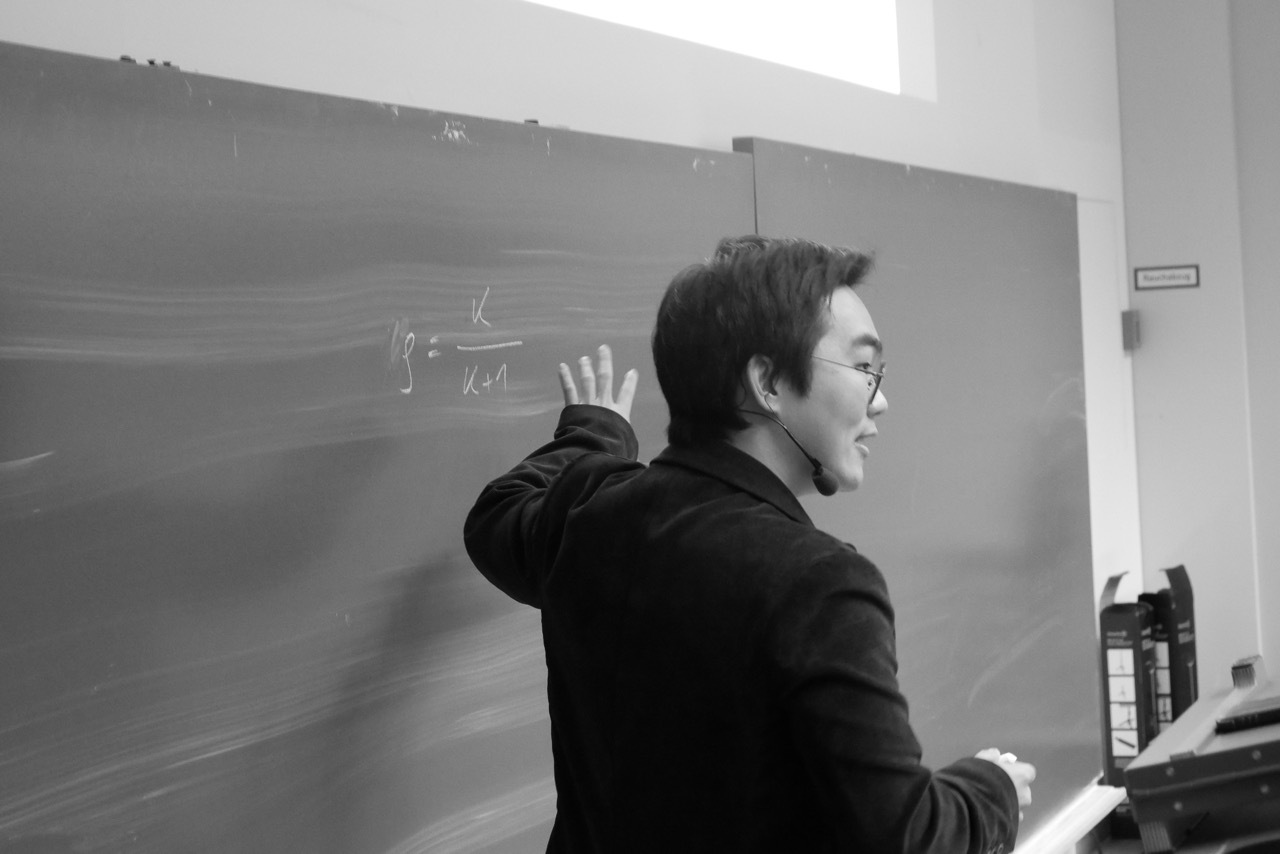
By Prof. Katharina Baum (FU Berlin)
Date: January 07, 2025
Prof. Katharina Baum is an Assistant professor for Data Integration in the Life Sciences at the Free University Berlin’s Institute of Computer Sciences. With a strong background in theoretical biophysics and data science, she has held research positions at renowned institutions, including the Hasso Plattner Institute, Mount Sinai’s Icahn School of Medicine, and the Max Delbrück Center for Molecular Medicine. Her expertise lies at the intersection of mathematics, computer science, and biomedical research, focusing on integrating and analyzing complex biological data. Prof. Baum holds a PhD in Theoretical Biophysics from Humboldt University Berlin and has studied Mathematics at Humboldt University and École Polytechnique in France.
The integration of artificial intelligence and machine learning methods in the life sciences has enabled new insights into complex biological systems. However, the reliability and interpretability of machine learning (ML) models remain critical challenges. This talk explores strategies for informing ML models with domain-specific knowledge to enhance their accuracy and robustness. Additionally, it addresses the importance of quantifying and explaining uncertainty in data-driven analyses to ensure transparency and trust in biomedical applications.
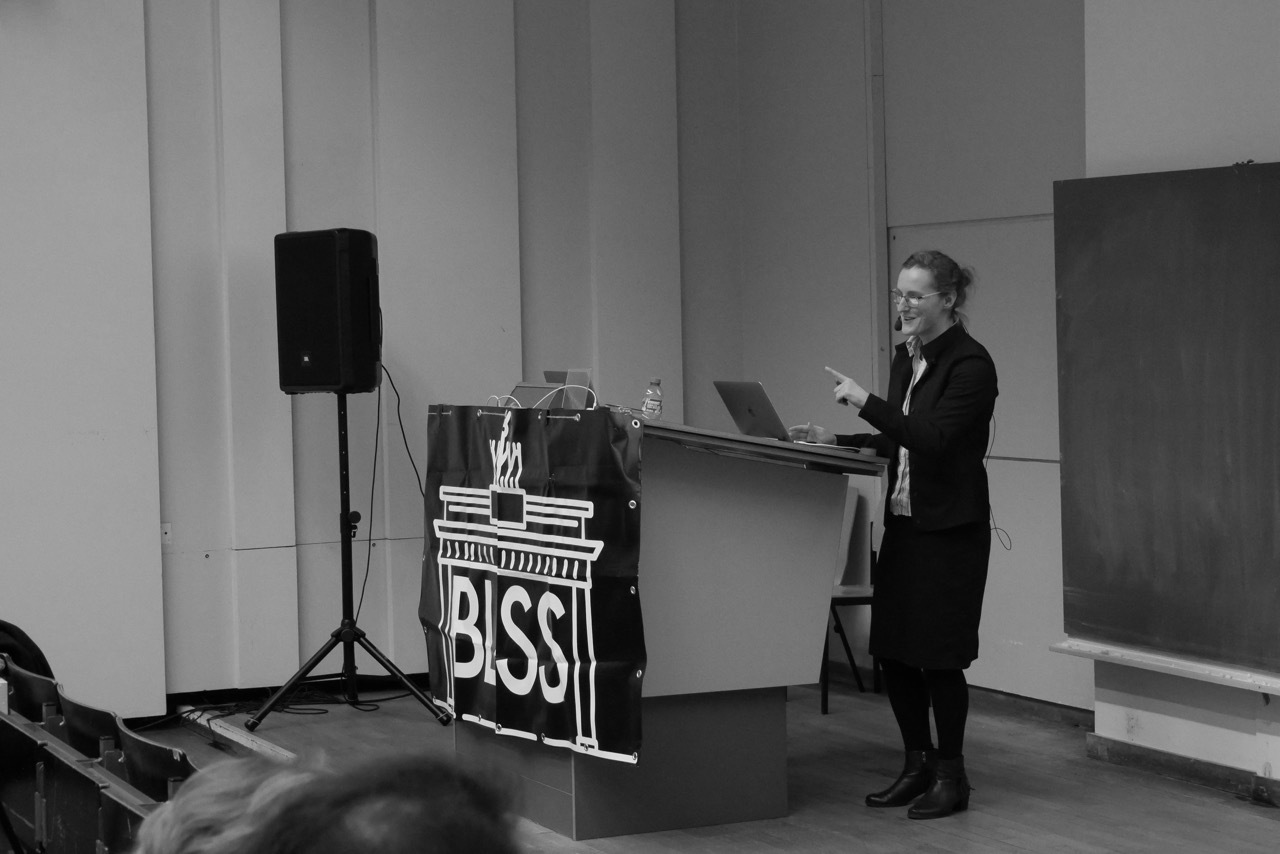
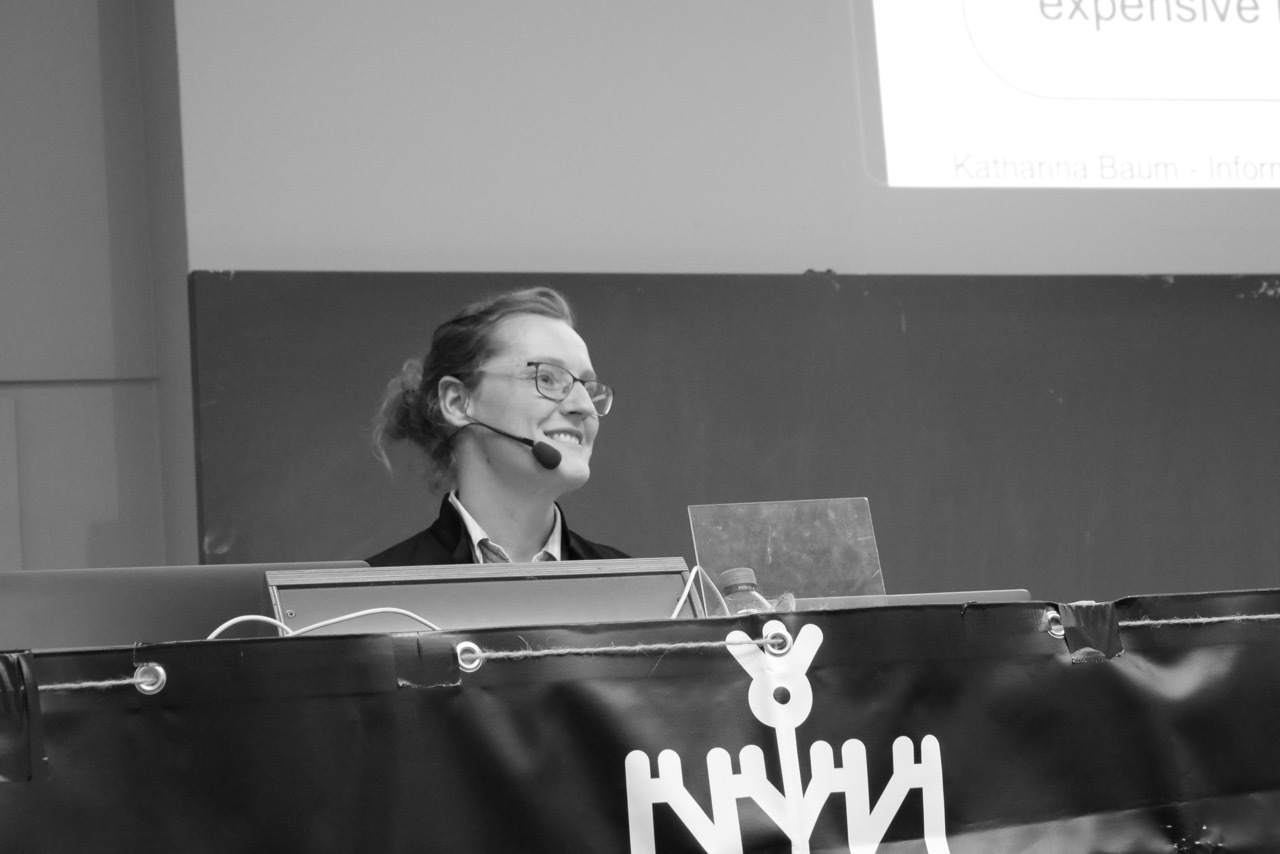
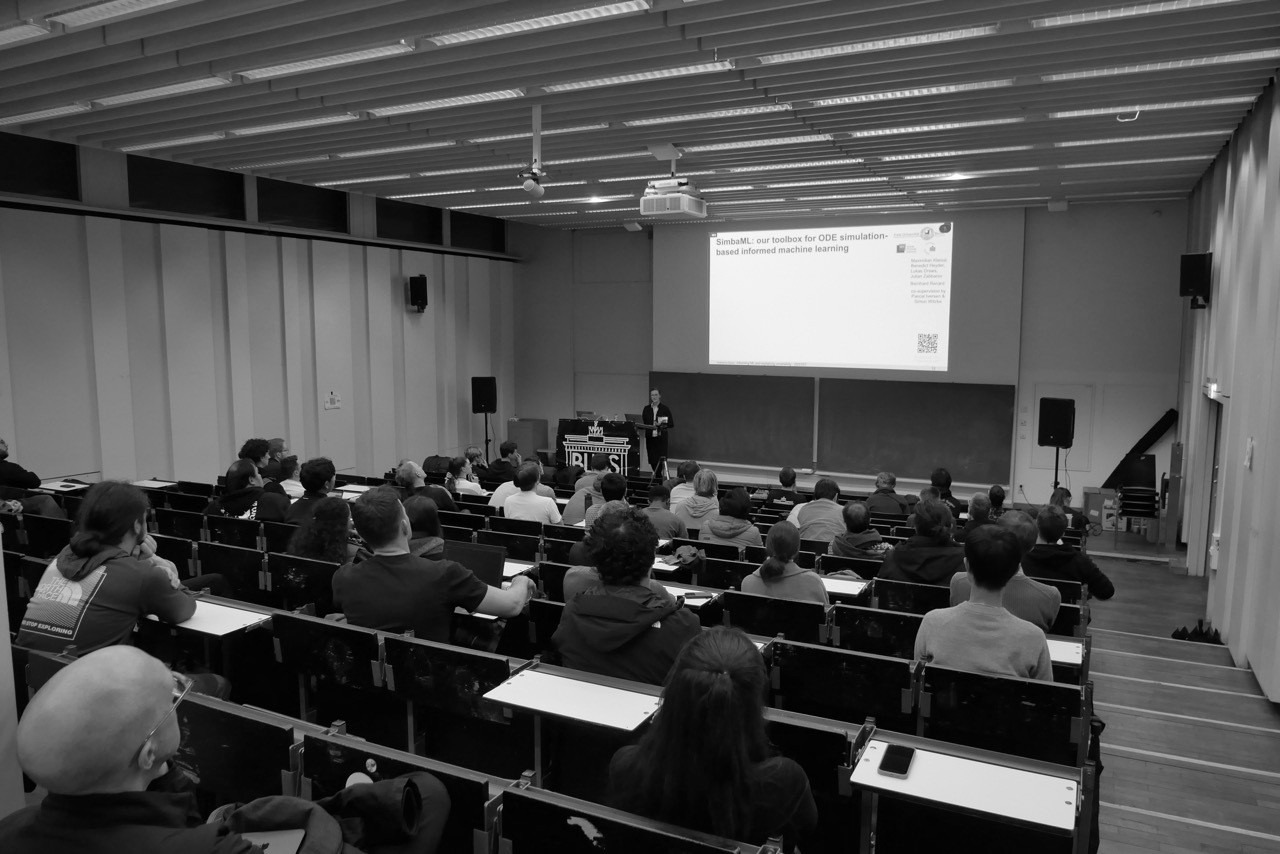
By Nima Siboni and Miguel Andres (InstaDeep)
Date: December 17, 2024
Nima Siboni and Miguel Arbesú Andrés are Senior (Applied) Research Engineers at InstaDeep. They did their PhDs at RWTH Aachen University resp. University of Barcelona.
This talk explores how generative models can create novel molecular structures while RL fine-tunes these candidates toward desired biological and chemical properties. By incorporating domain-specific constraints and feedback mechanisms, this approach has the potential to accelerate drug discovery, optimizing for both efficacy and synthesizability.

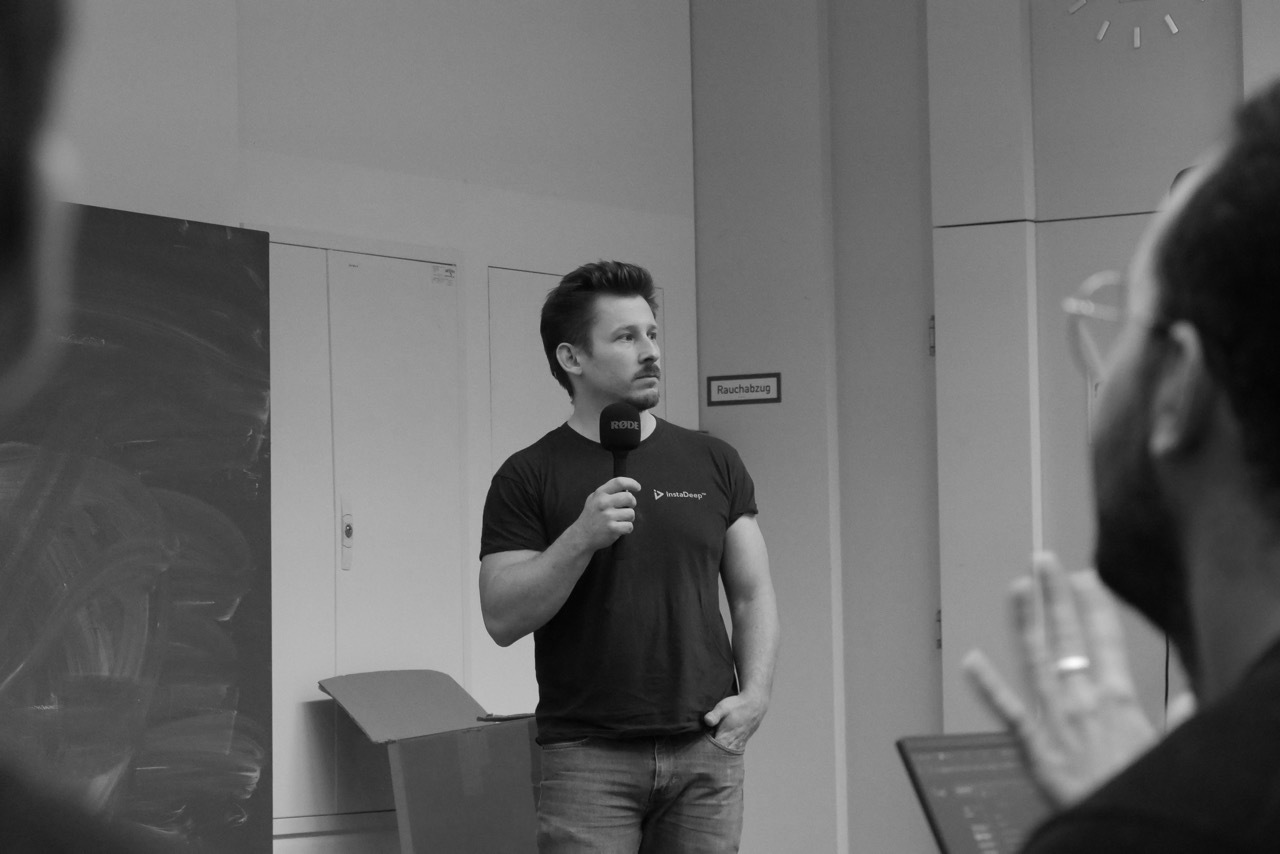


By Prof. Alexandra Carpentier (University of Potsdam)
Date: December 03, 2024
Prof. Alexandra Carpentier is a professor of Mathematical Statistics and Machine Learning at the University of Potsdam. She holds a PhD in Mathematical Statistics from INRIA, was a Postdoctoral Researcher at the University of Cambridge and has previously been on faculty at the University of Magdeburg and Université Paris-Nanterre. Her research focuses on sequential decision-making, bandit algorithms, and high-dimensional statistical inference, with applications in machine learning, anomaly detection, and neuroscience. She is the recipient of the prestigious Von Kaven Prize (2020) and serves as an associate editor for several top journals, including the Annals of Statistics and SIAM UQ.
This talk introduces Bandit Theory, a framework for sequential, adaptive learning in uncertain environments with partial information. Inspired by the classic multi-armed bandit problem, where a decision-maker balances exploration and exploitation, this approach extends to settings where actions actively influence the data received. Unlike traditional batch learning, the learner gathers data incrementally, adapting strategies based on observations.
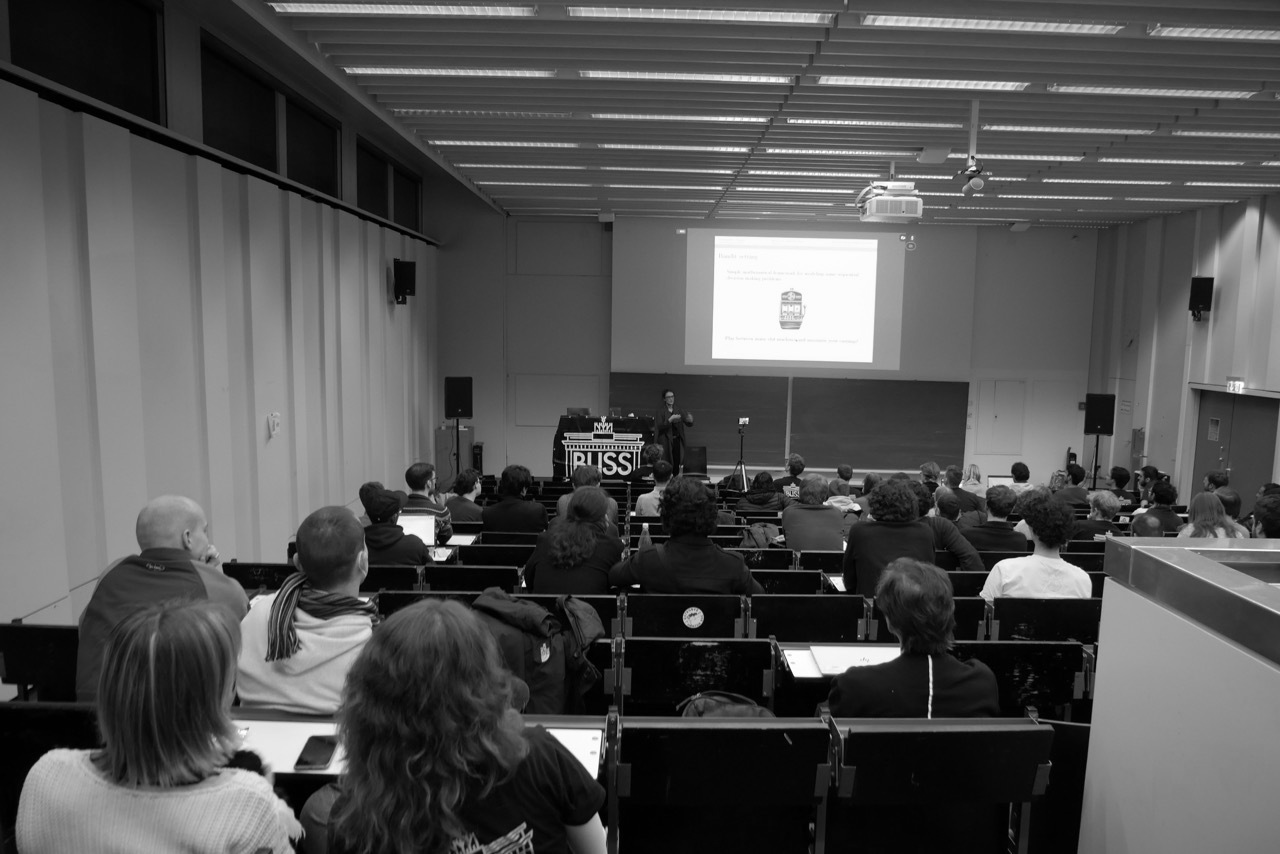
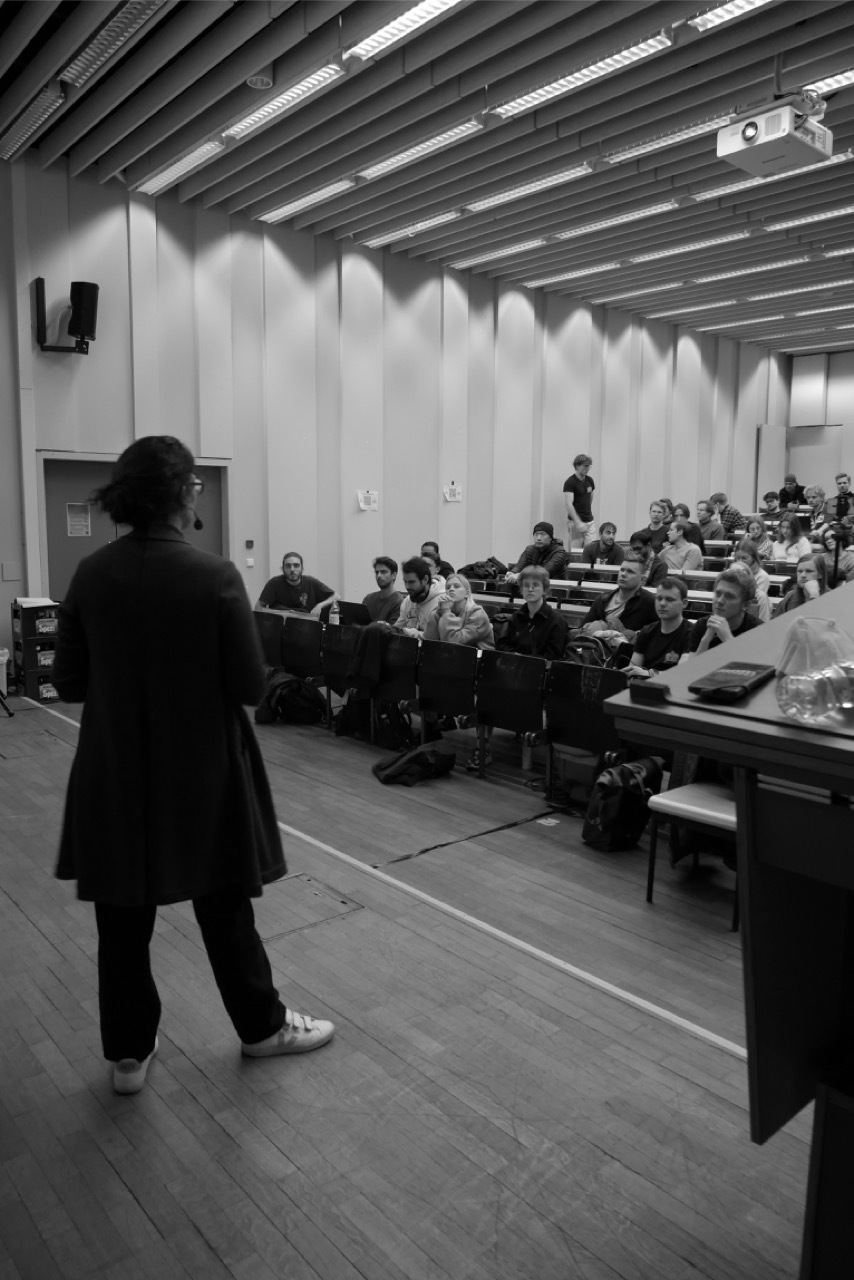
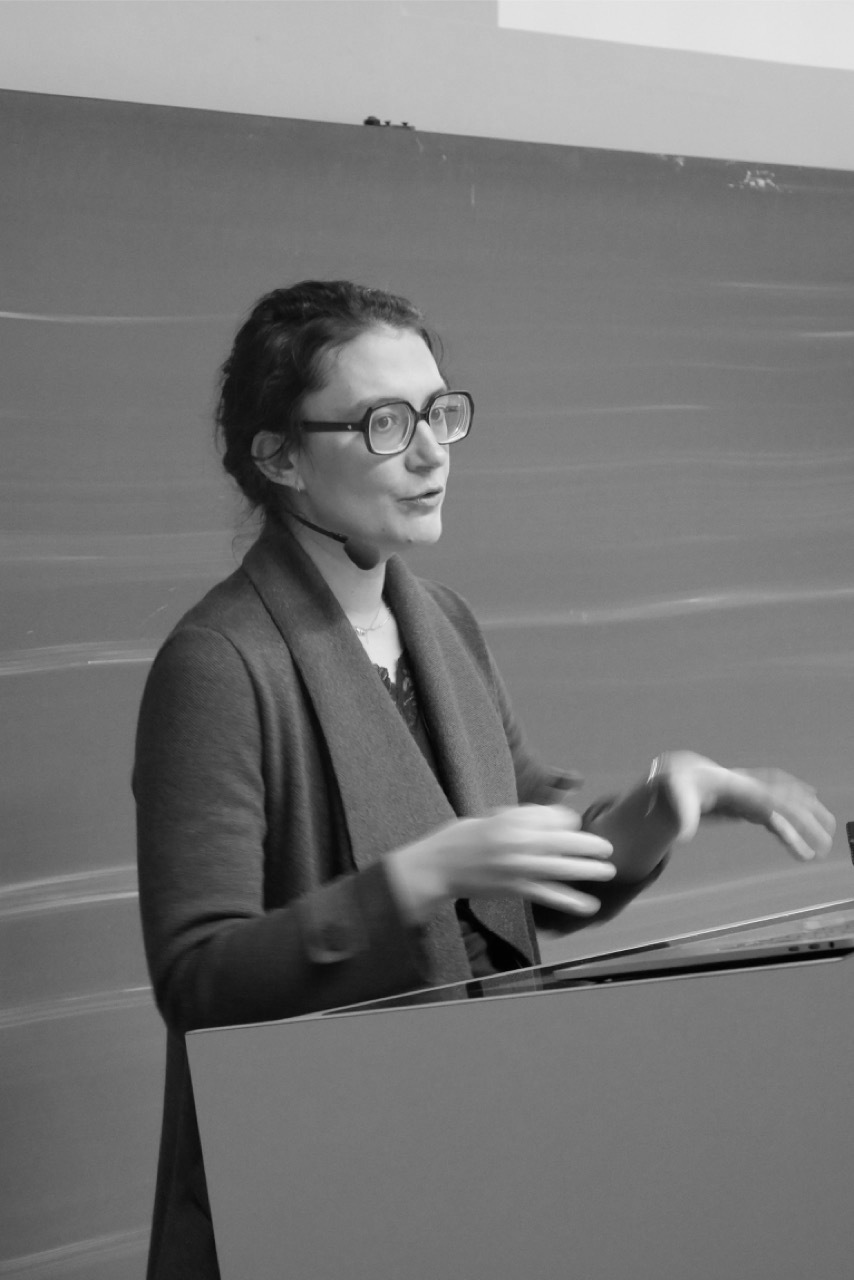
By Prof. Marc Toussaint (TU Berlin)
Date: November 19, 2024
Prof. Marc Toussaint is a full professor at the Technical University of Berlin, where he leads the Learning and Intelligent Systems Lab. His research focuses on machine learning, robotics, and intelligent decision-making. Previously, he was a full professor at the University of Stuttgart, a Max Planck Fellow at the MPI for Intelligent Systems, and led the ML-Robotics lab at Amazon Berlin. Before that, he has held research positions at MIT, Free University of Berlin and the University of Edinburgh. After studies in theoretical physics and neuroinformatics, he obtained his PhD in Adaptive Systems from Ruhr University Bochum.
Marc's talk explores how combining traditional model-based planning with modern neural network approaches enables robots to navigate and manipulate complex, unstructured environments. He demonstrates that integrating deep visual constraints and generative models with classical planning techniques can create more adaptable and robust decision-making strategies in robotics.
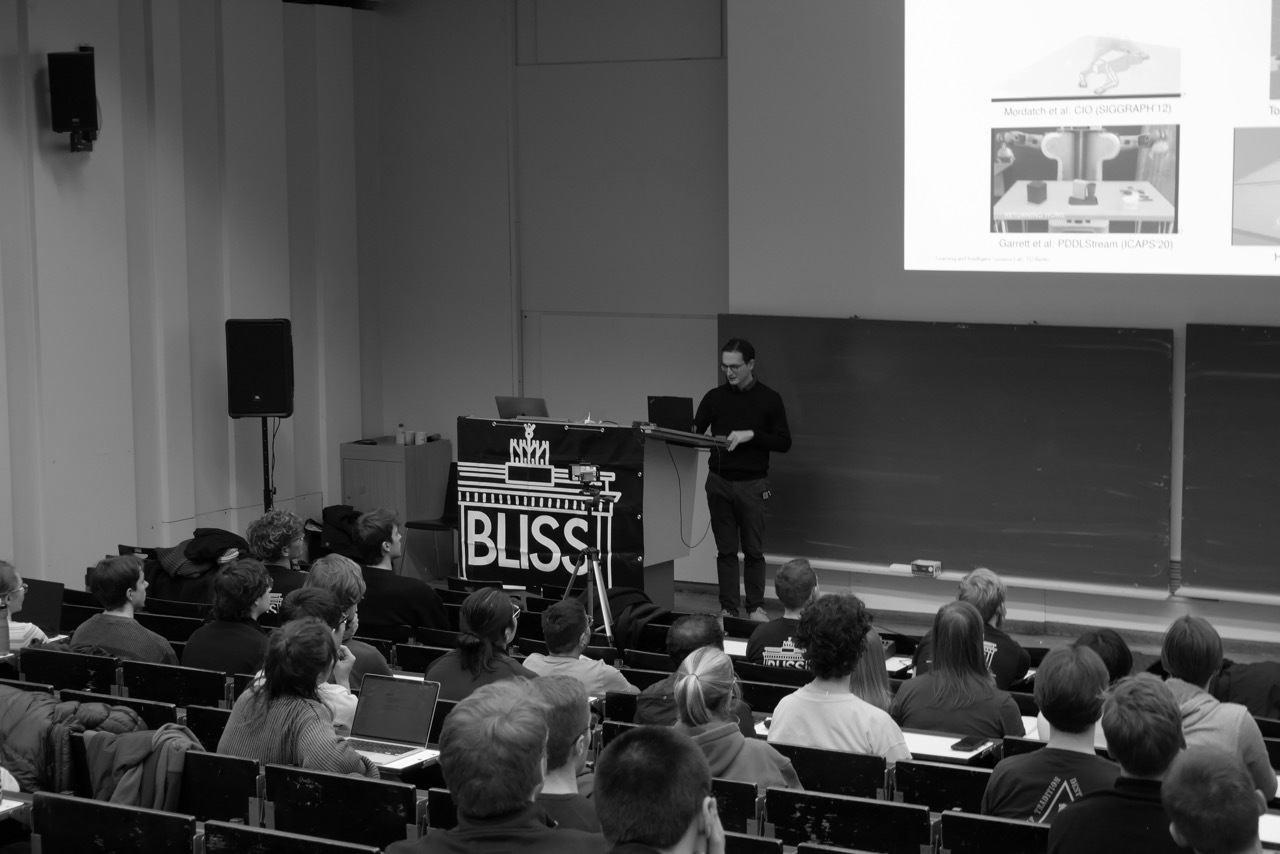
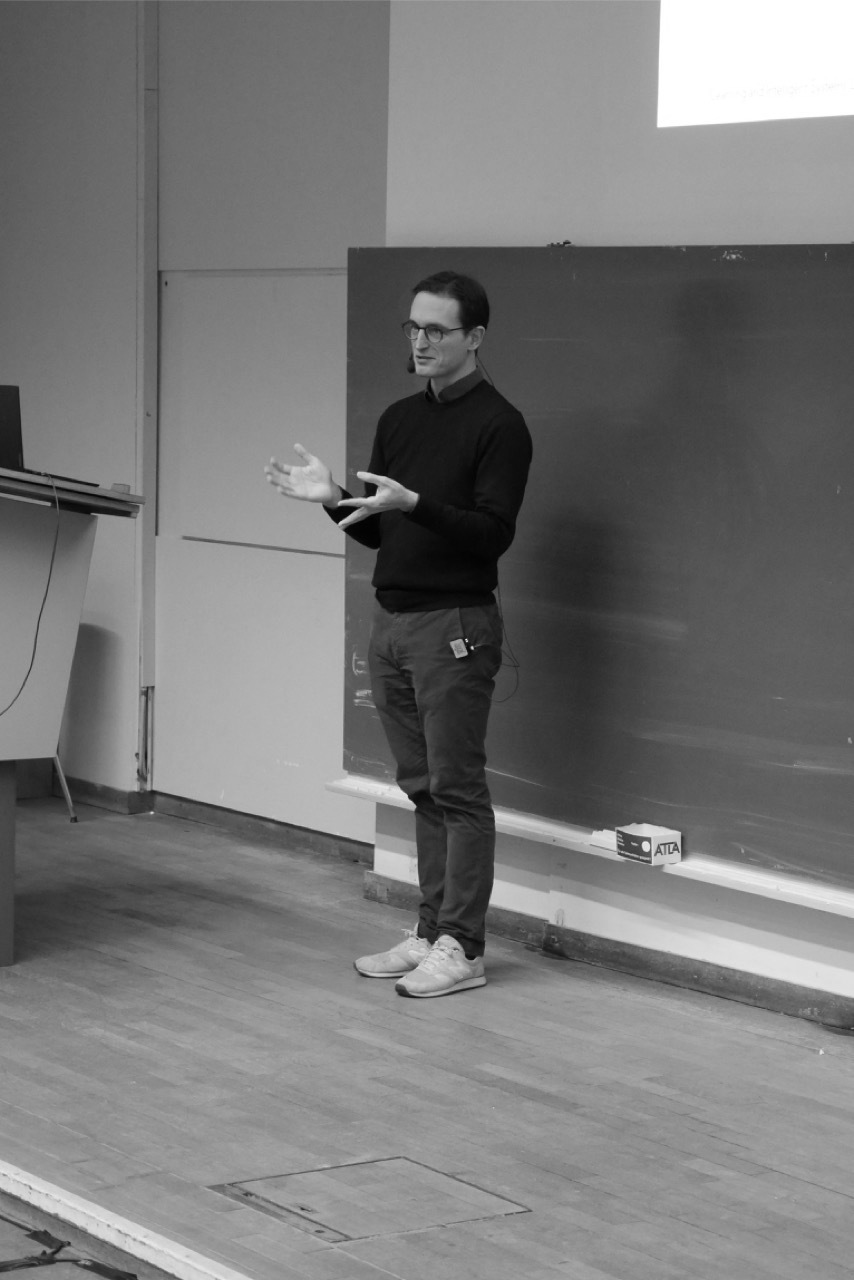
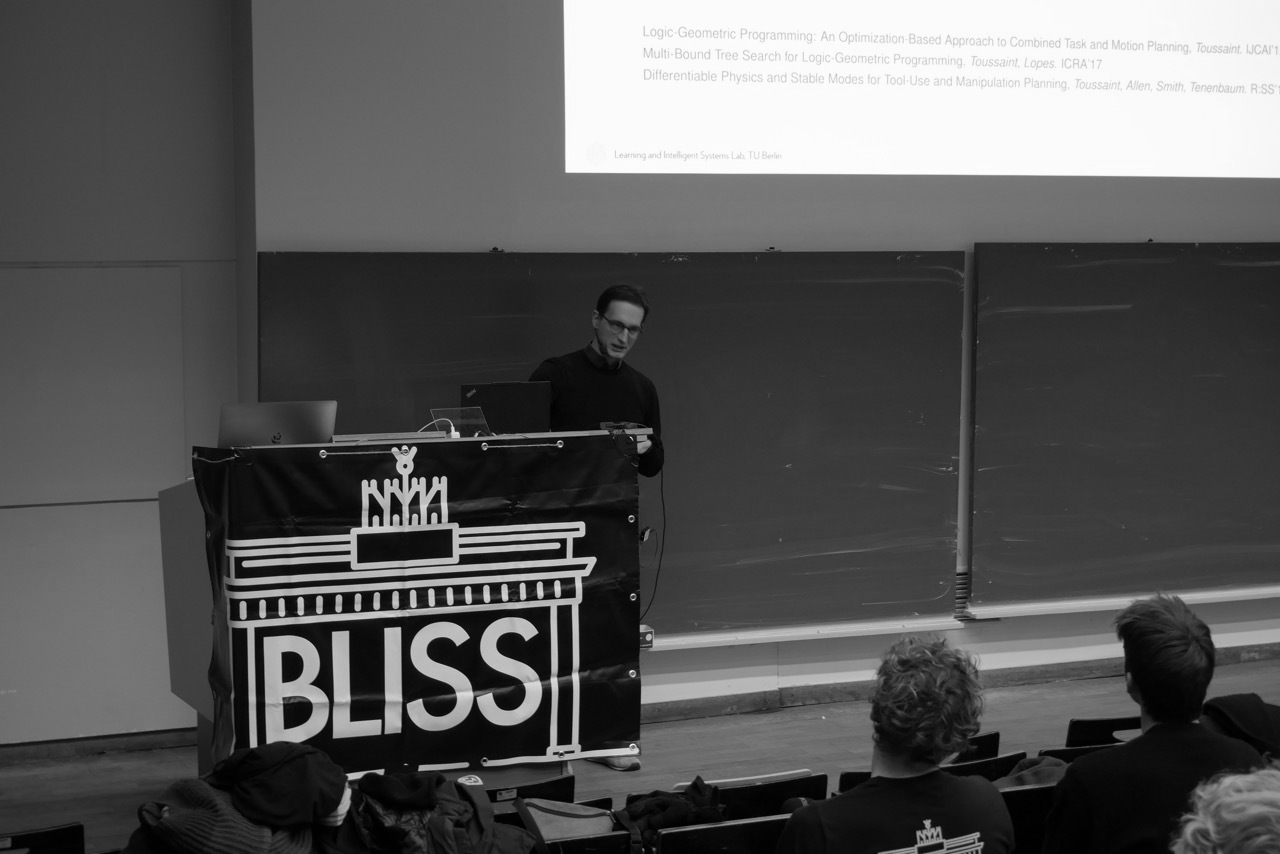
By Robert Lange (Sakana.AI)
Date: November 05, 2024
Robert Lange is a Research Scientist at Sakana.AI and a PhD student at TU Berlin, working on Evolutionary Meta-Learning. He gained Professional Experiences at Google DeepMind, Science of Intelligence and other research institutions before joining Sakana.AI
Robert's talk, “The AI Scientist,” outlines an innovative pipeline where generative AI automates the research process—from formulating ideas and designing experiments to drafting manuscripts. By integrating iterative code implementation, automated reviewing, and ethical safeguards, the presentation demonstrates how AI can accelerate scientific discovery while keeping human insight in the loop.

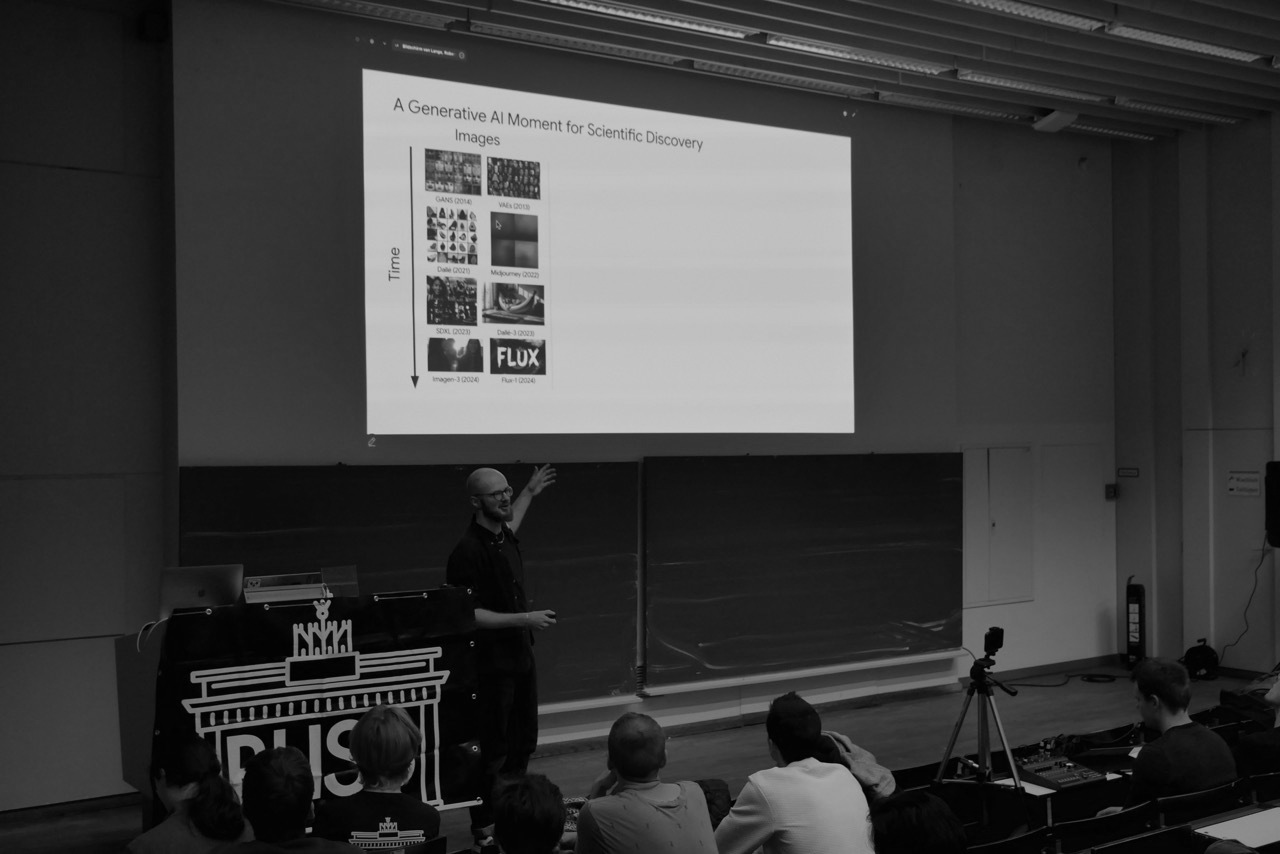
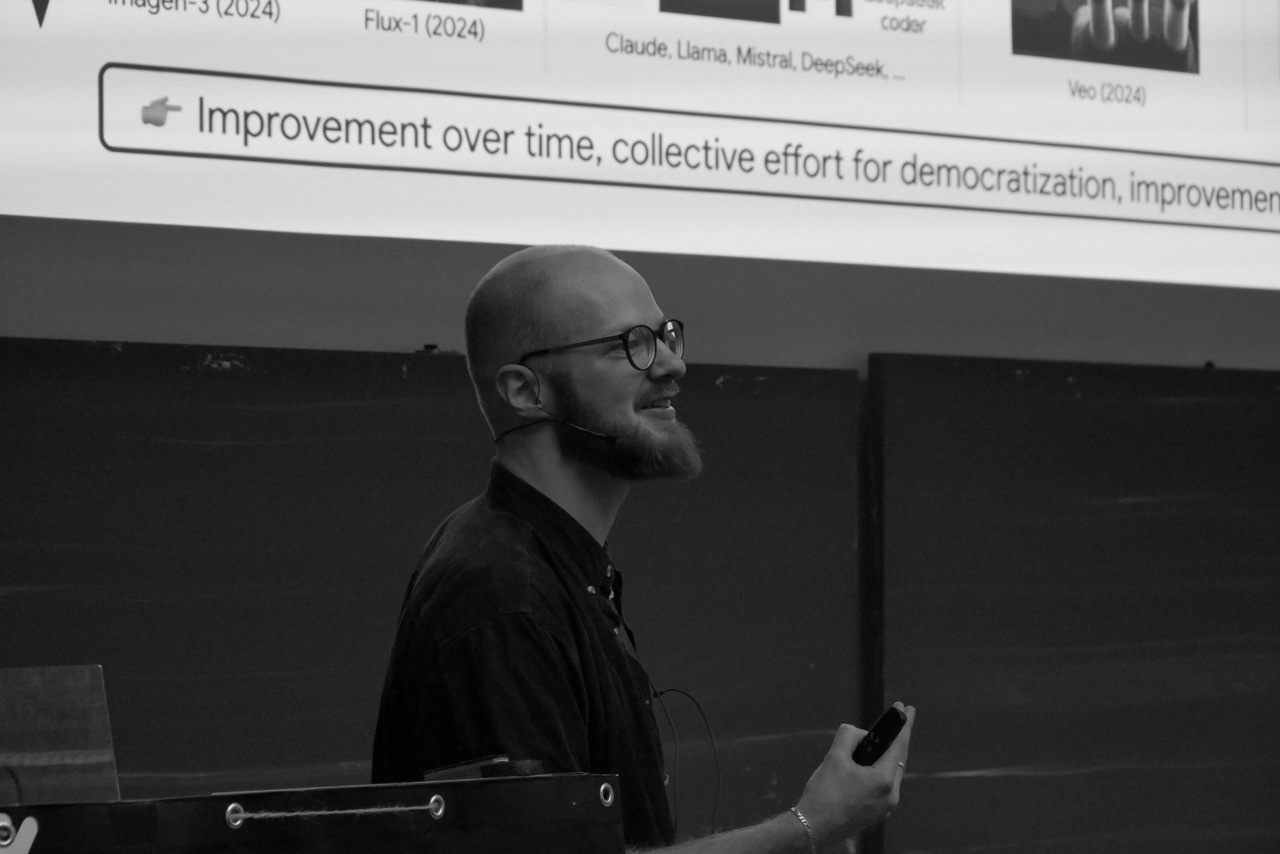
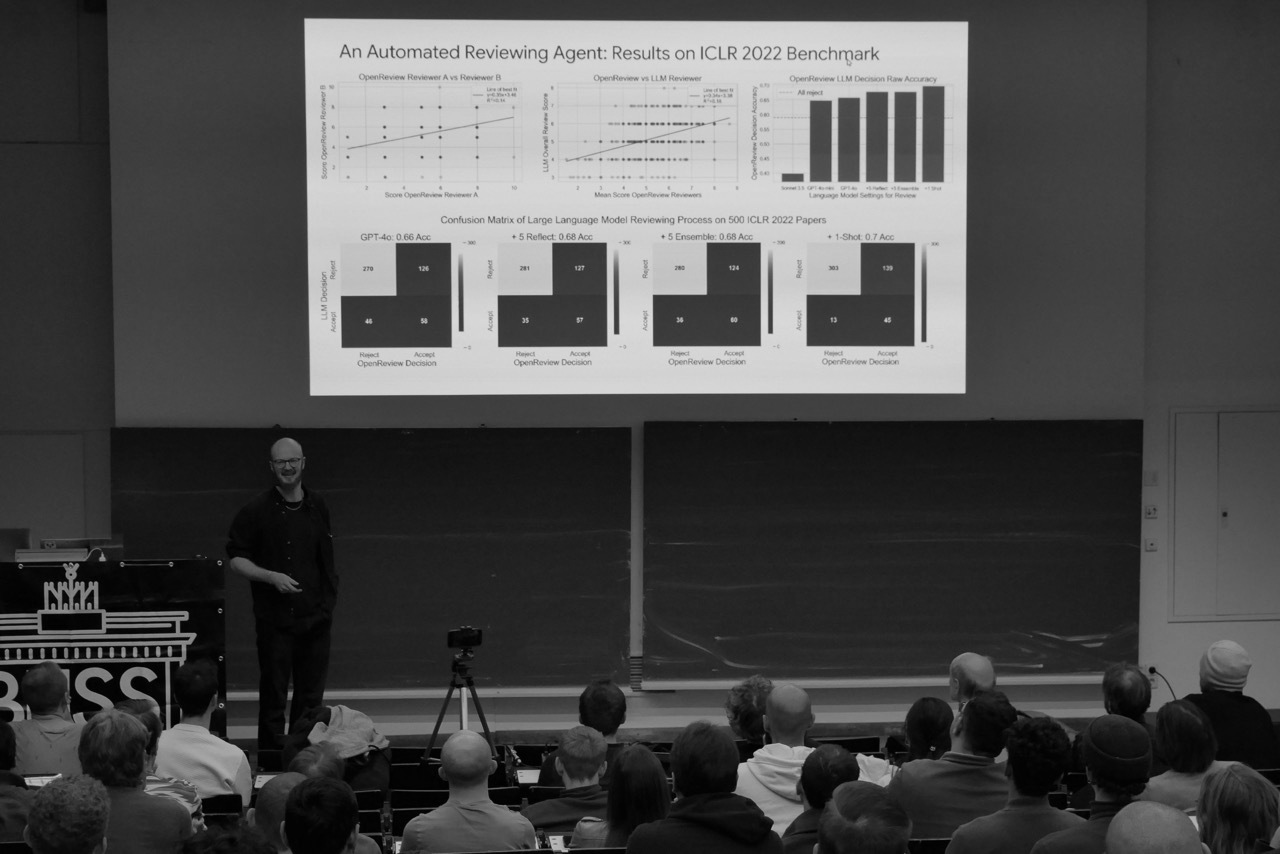
By Veronika Solopova (TU Berlin)
Date: October 22, 2024
Veronika Solopova is a PostDoc at TU Berlin and NLP Engineer at Mantis Analytics. Her work is centered around analyses regarding social media and detecting hate speech, propaganda and detecting shitstorms.
Veronika's talk examines how AI can fortify disinformation resilience by creating transparent, accurate, and adaptable systems for detecting propaganda across diverse languages and media formats. By leveraging sophisticated linguistic features, statistical models, and real-world user feedback, she illustrates a comprehensive approach that empowers journalists, fact-checkers, and policymakers to effectively counter misinformation.
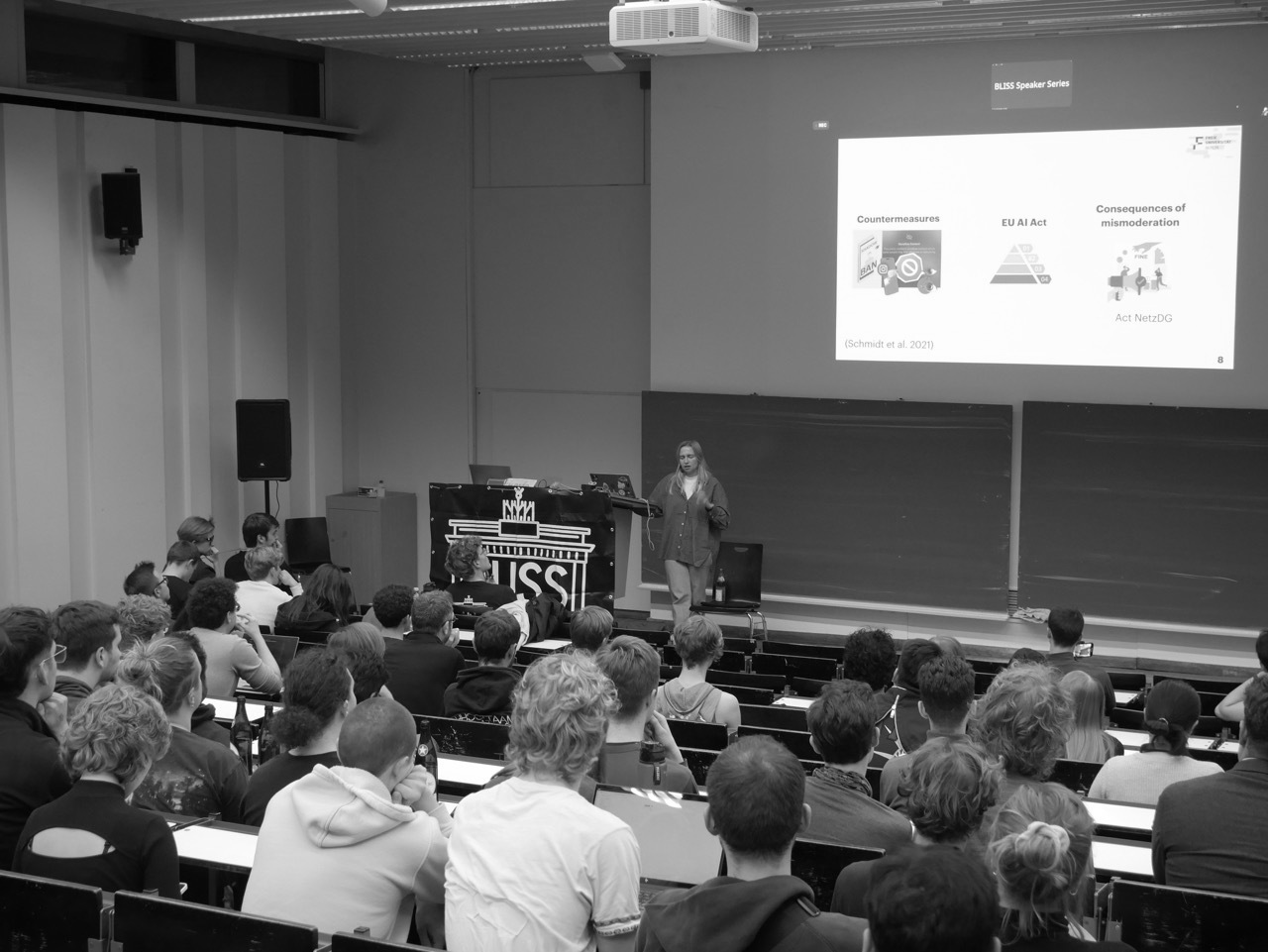
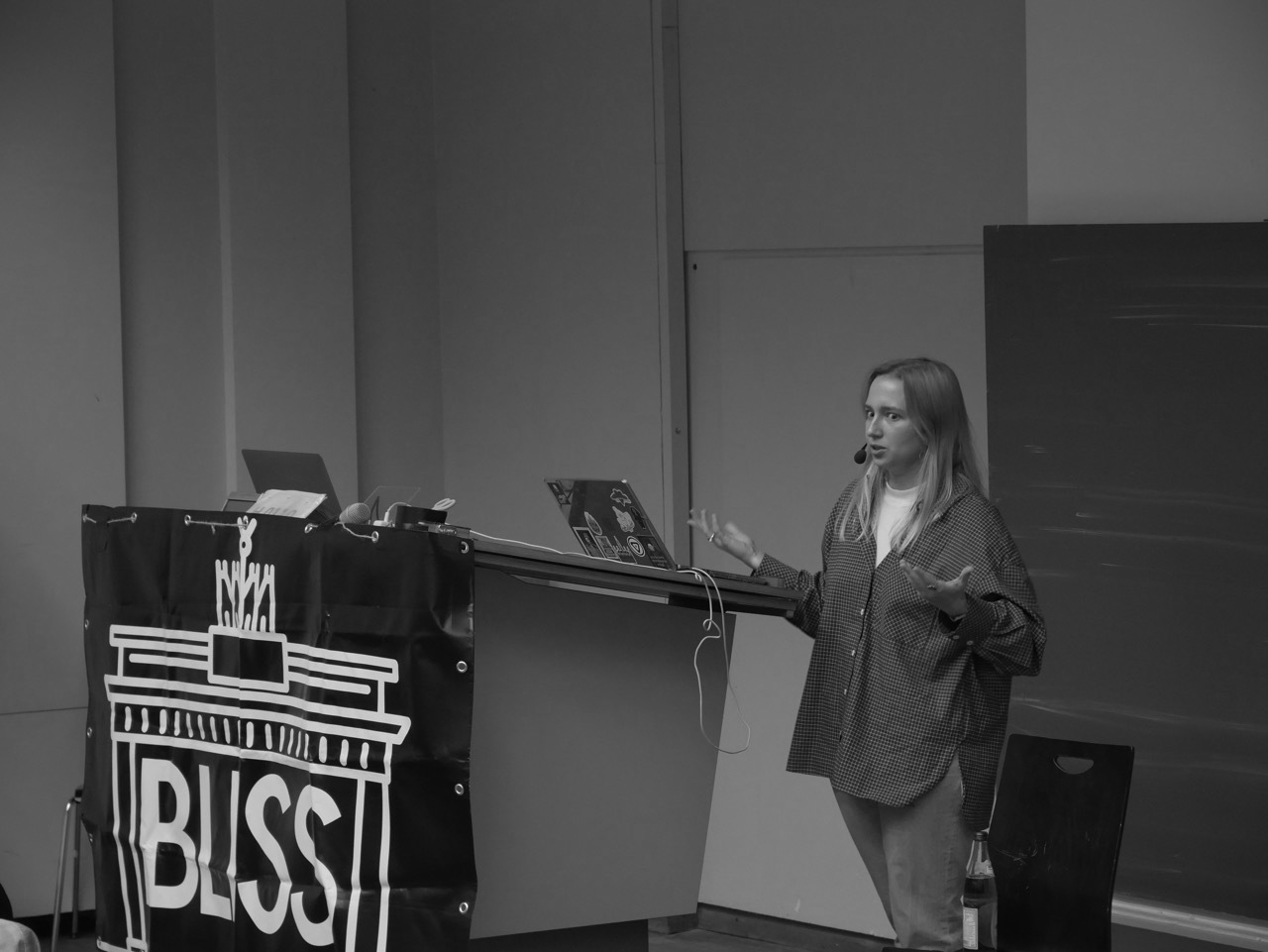
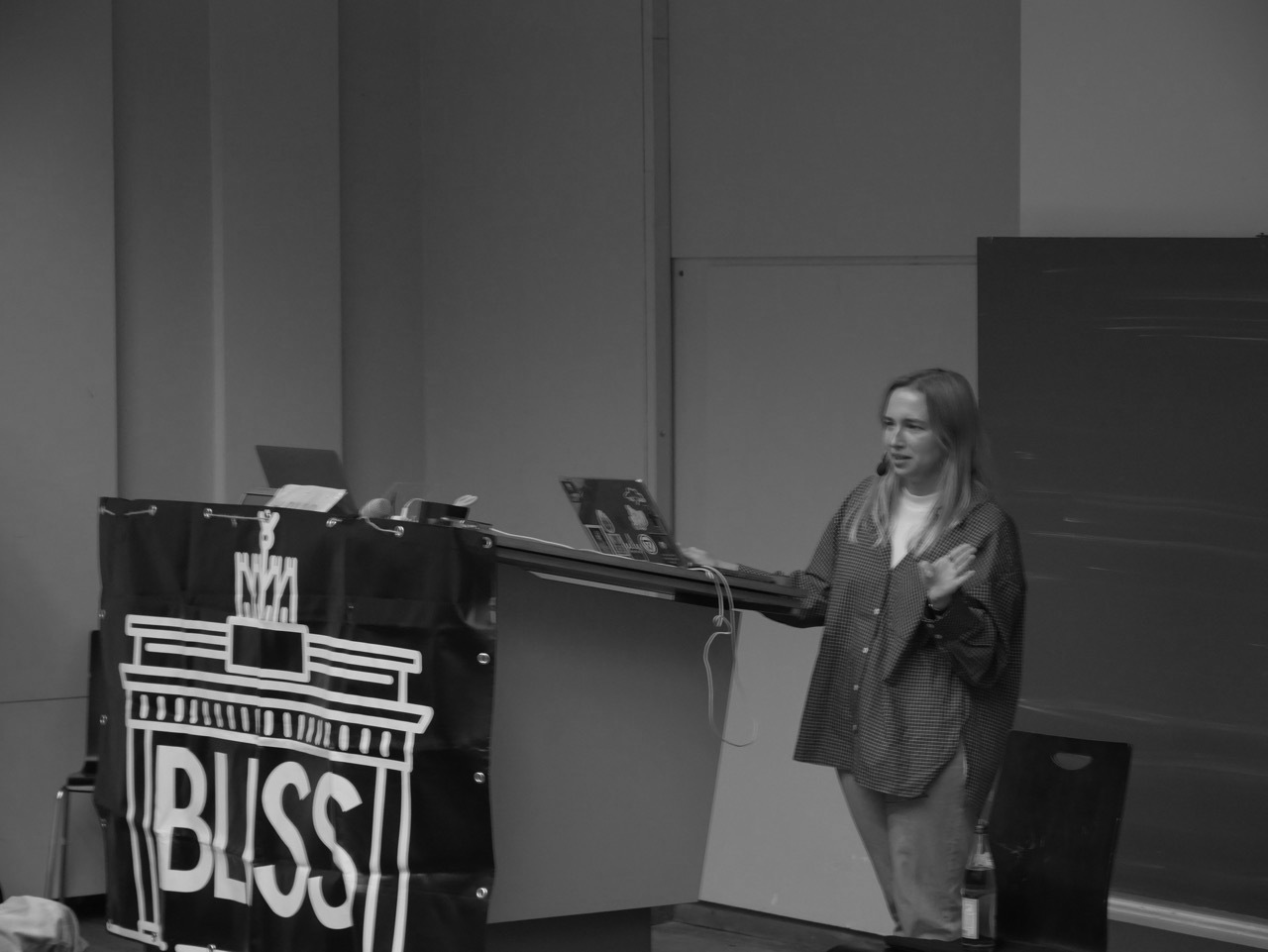
By Prof. Cecilia Clementi (FU Berlin)
Date: July 09, 2024
Prof. Cecilia Clementi is an Einstein professor at the FU Berlin Theoretical and Computational Biophysics Lab
Prof. Clementi delves into the exciting intersection of machine learning, experimental science, and molecular modeling. This session offers a comprehensive look at how cutting-edge machine learning techniques can be combined with experimental data to enhance our understanding of molecular dynamics.
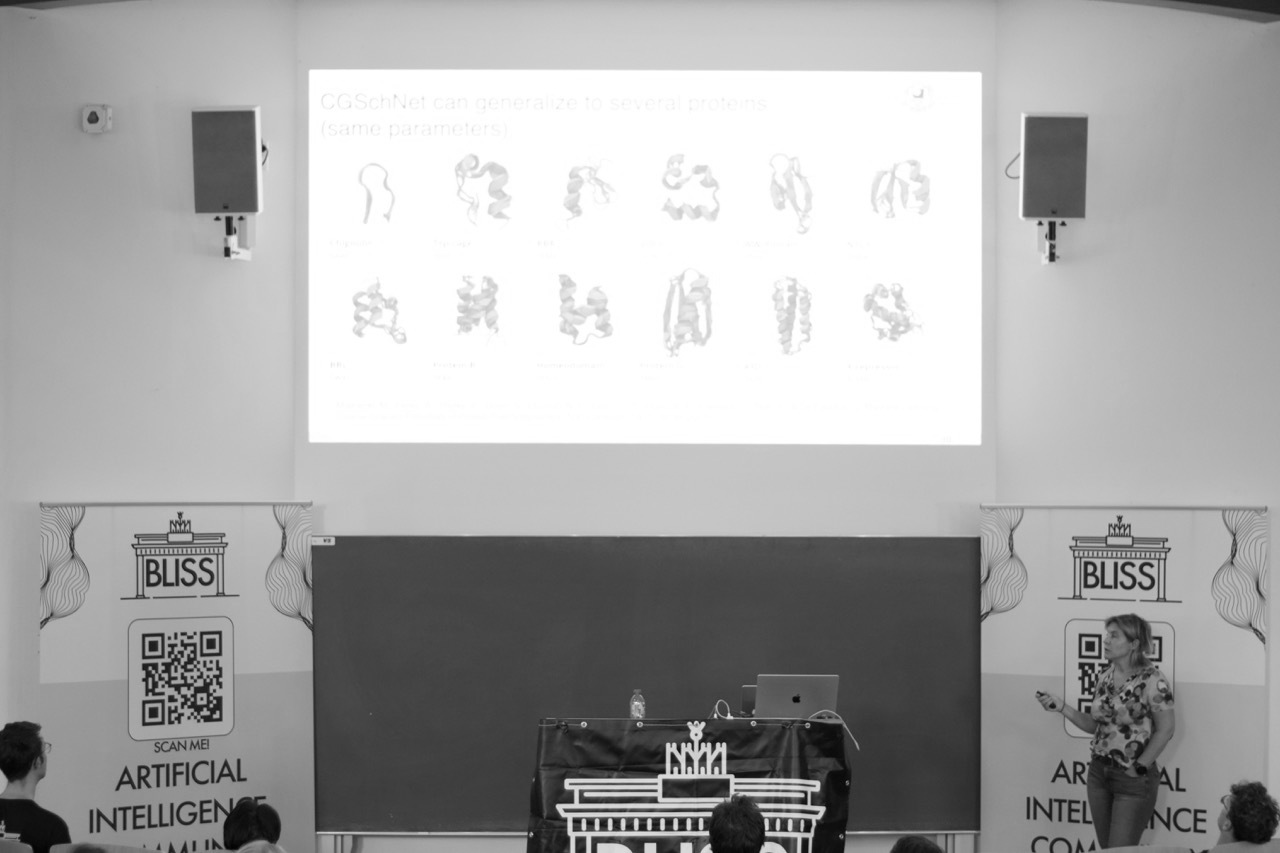
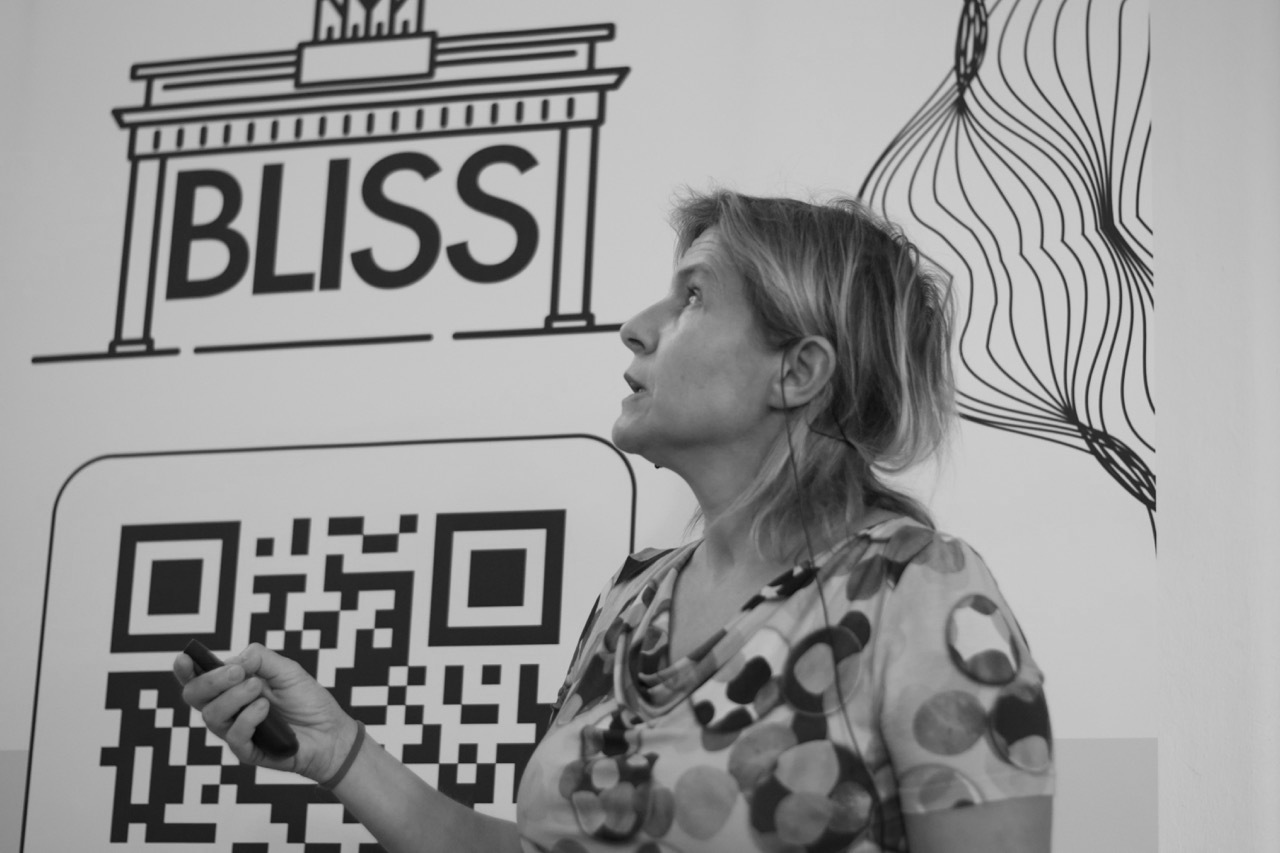
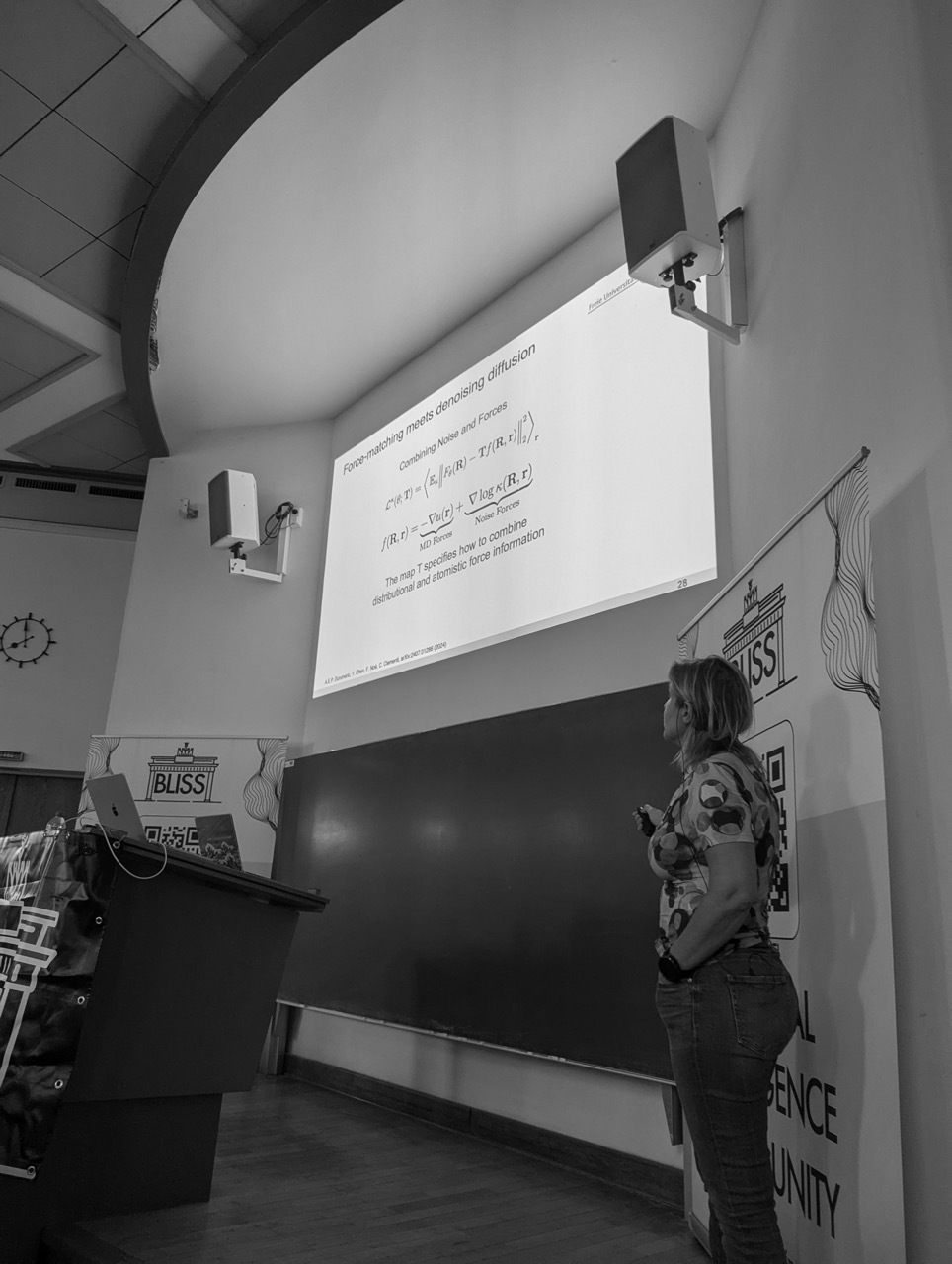
By Prof. Wolfgang Hoenig (TU Berlin)
Date: June 11, 2024
Prof. Wolfgang Hönig is an assistant professor at TU Berlin, leading the Intelligent Multi-Robot Coordination Lab. The focus is on developing methods for large teams of robots to collaborate on real-world tasks, utilizing informed search, optimization, and machine learning techniques.
Prof. Hönig's presentation explores cutting‐edge techniques for enabling intelligent flying multi-robot systems, where advanced machine learning models integrate seamlessly with motion planning and control to enhance safety and coordination. By leveraging neural interaction models and conflict-based search algorithms, the talk demonstrates how AI can effectively address the complex challenges of autonomous aerial teamwork.
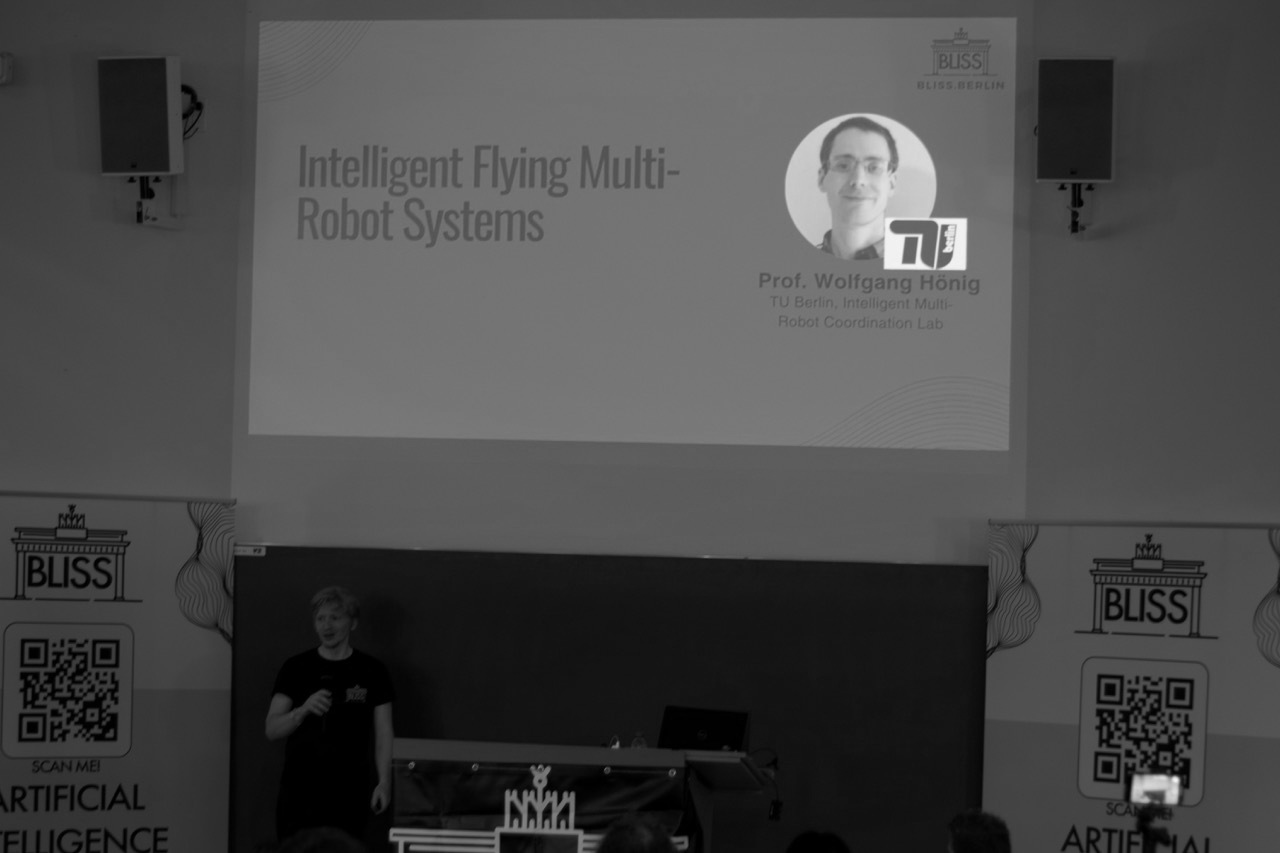
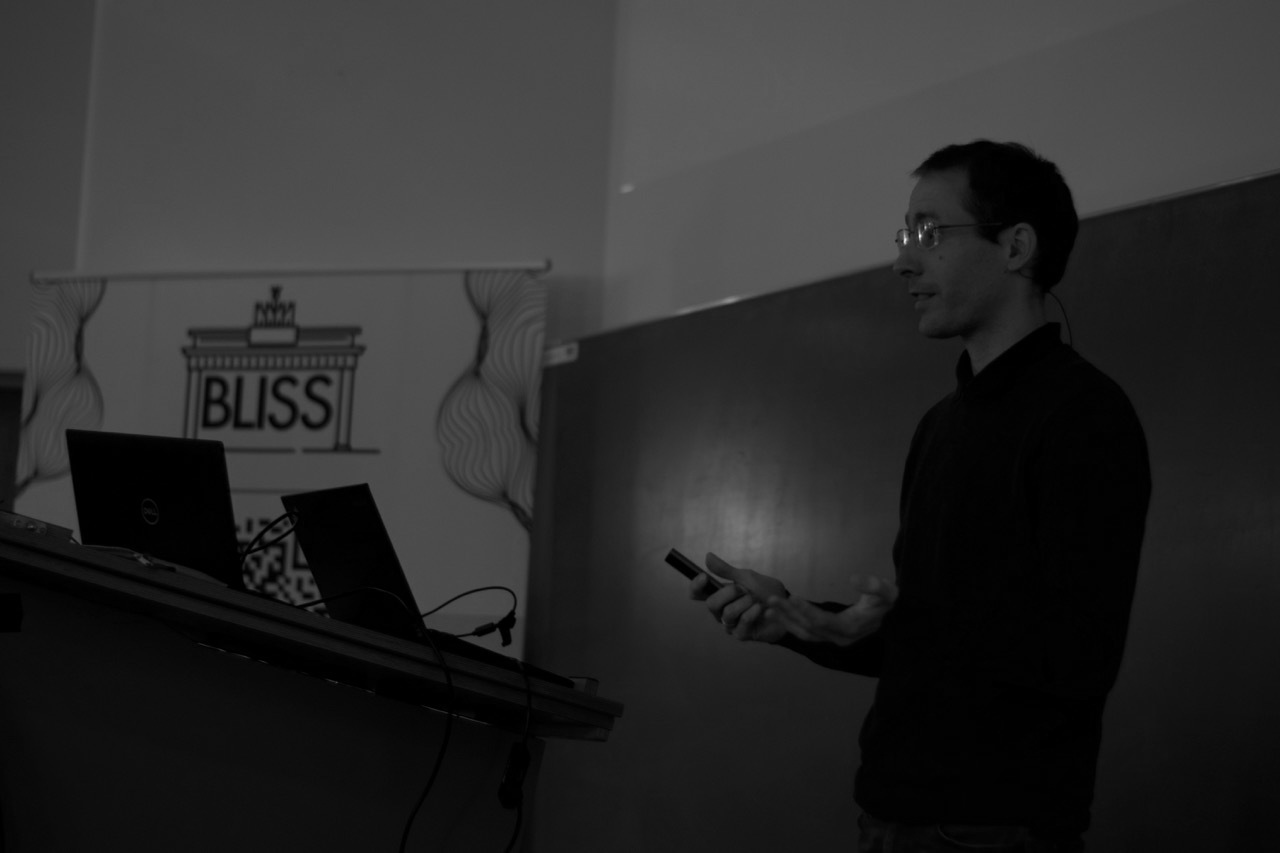
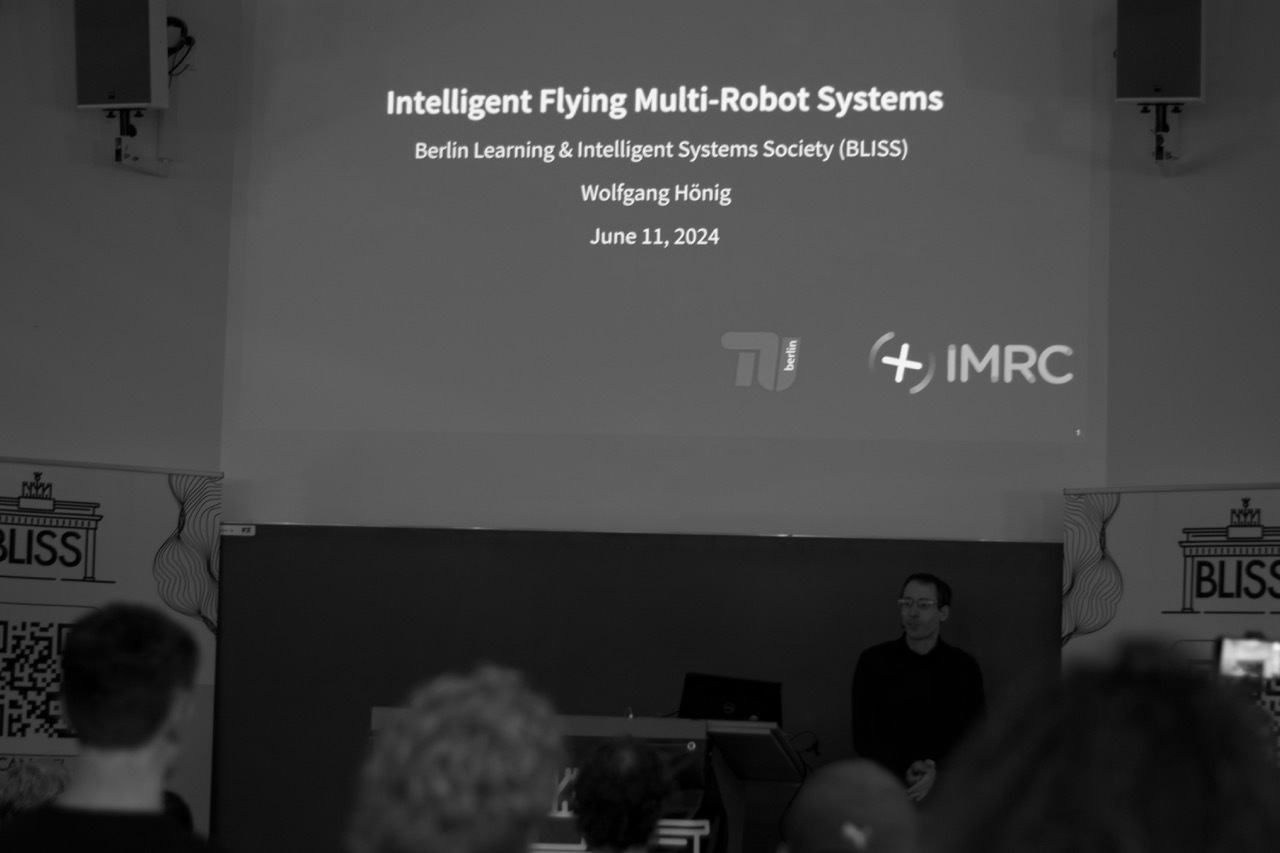
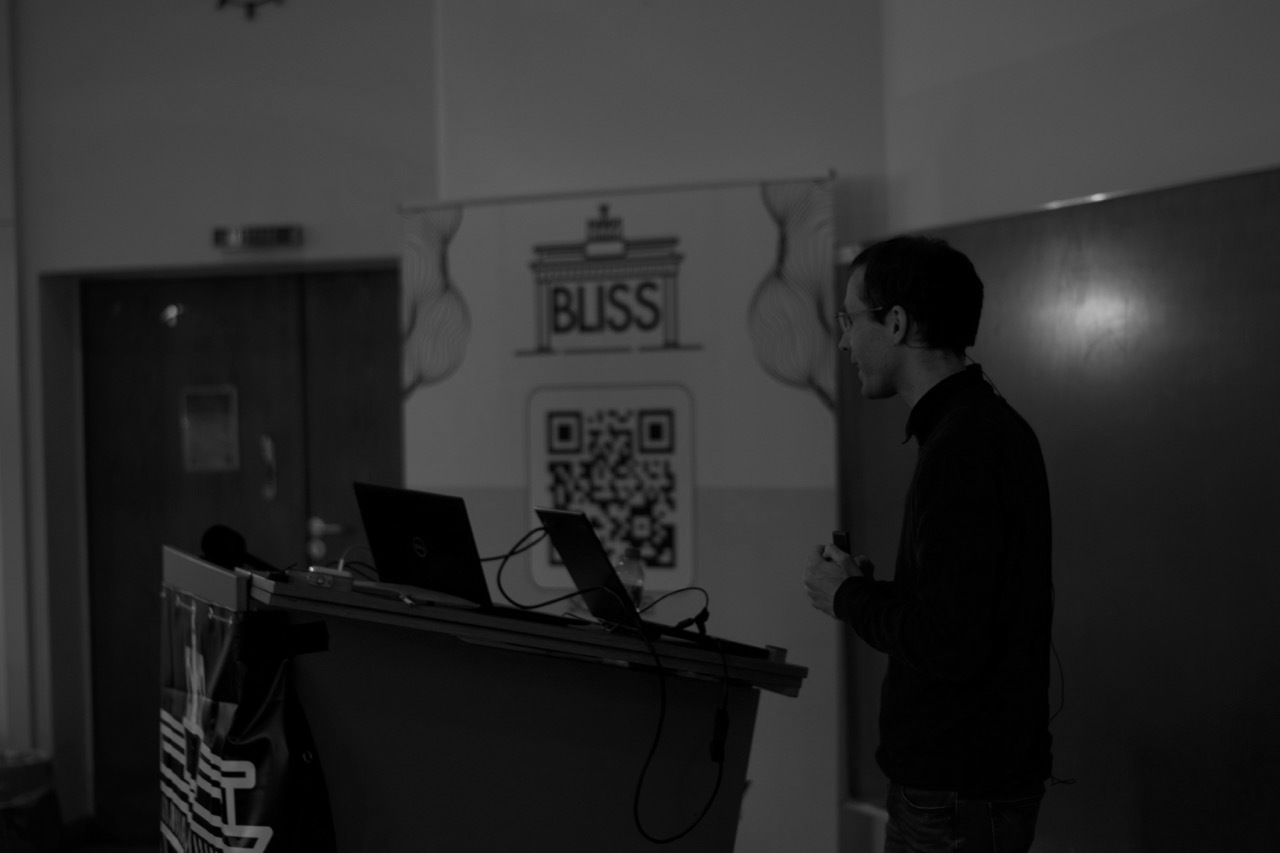
By Prof. Fatma Deniz (TU Berlin)
Date: May 28, 2024
Fatma Deniz, Vice President of the TU Berlin as well as Chair of the Language and Communication in Biological and Artificial Systems Lab.
Fatma's talk deals with Natural language representations in brains and machines.
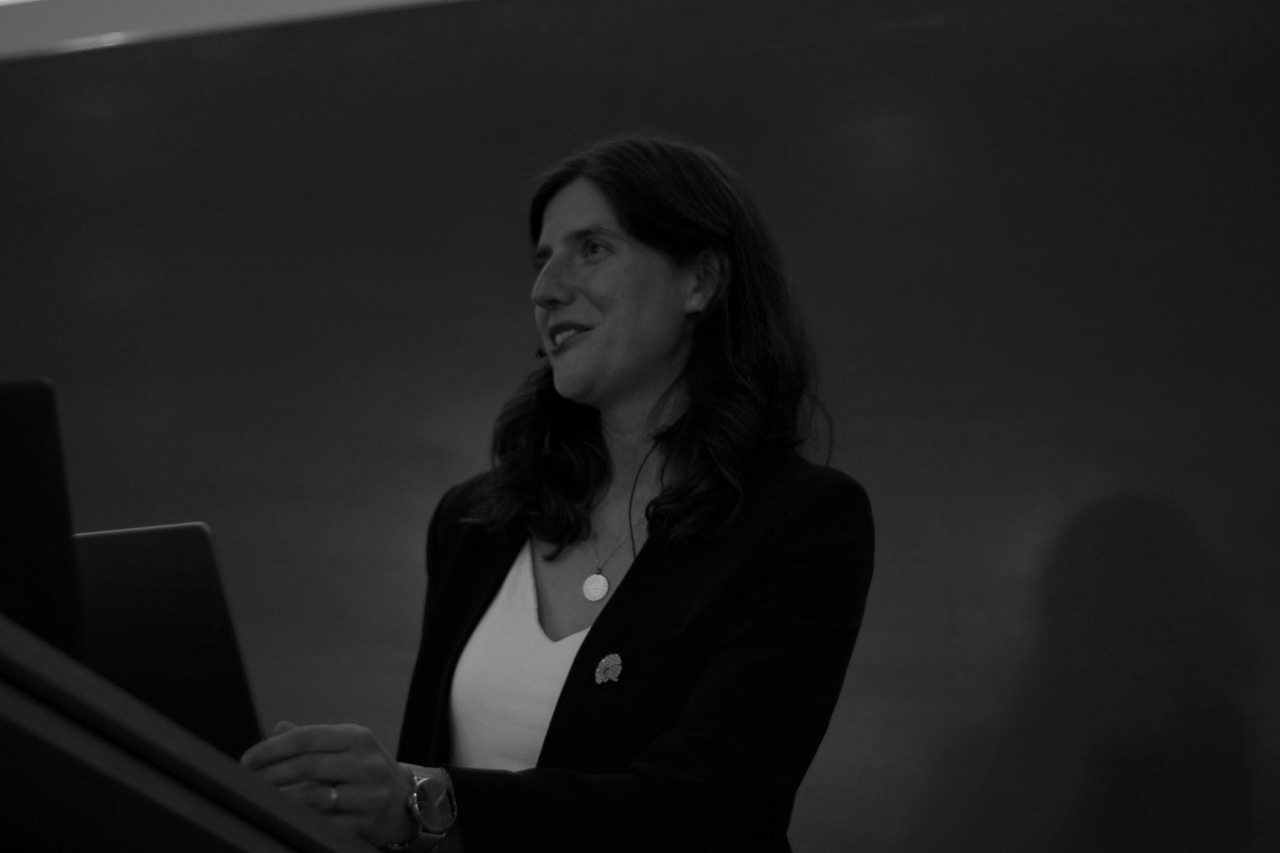
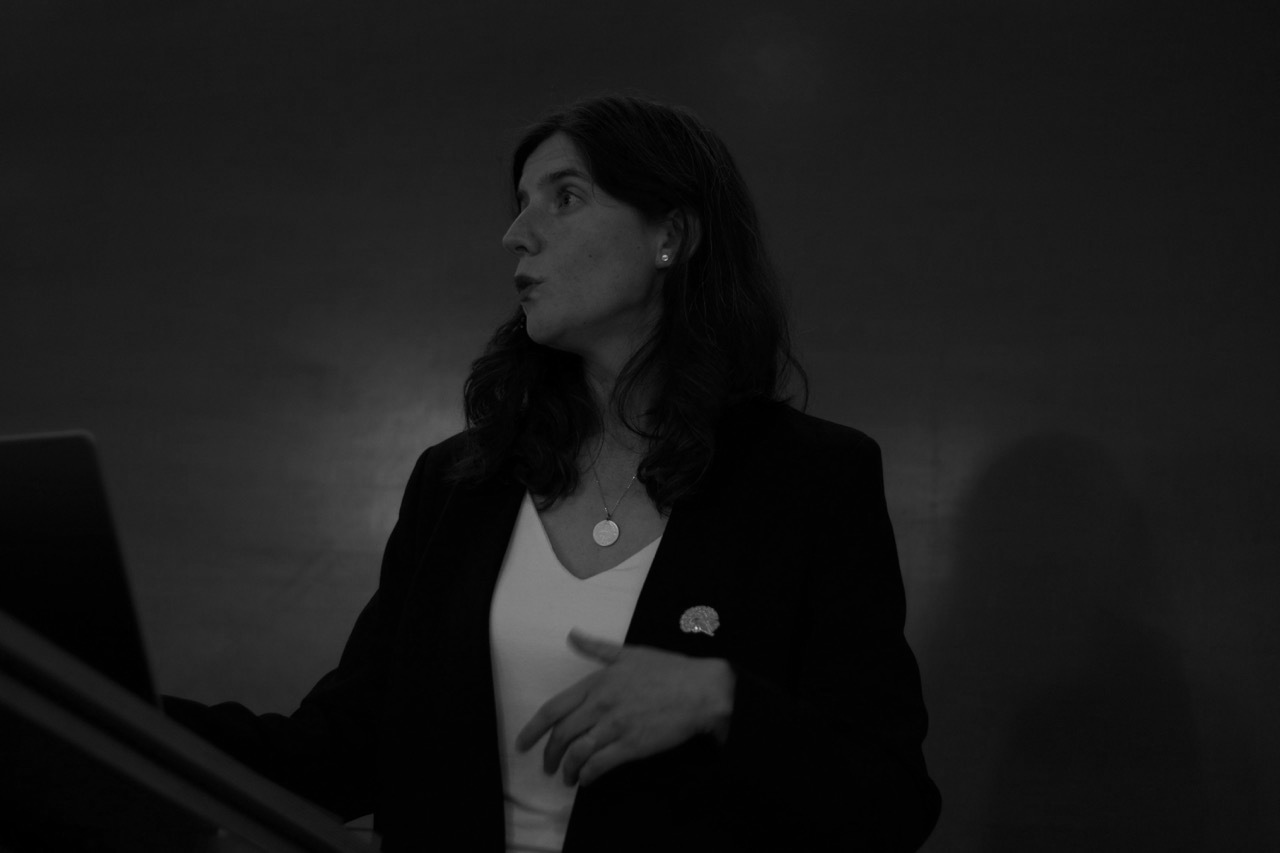
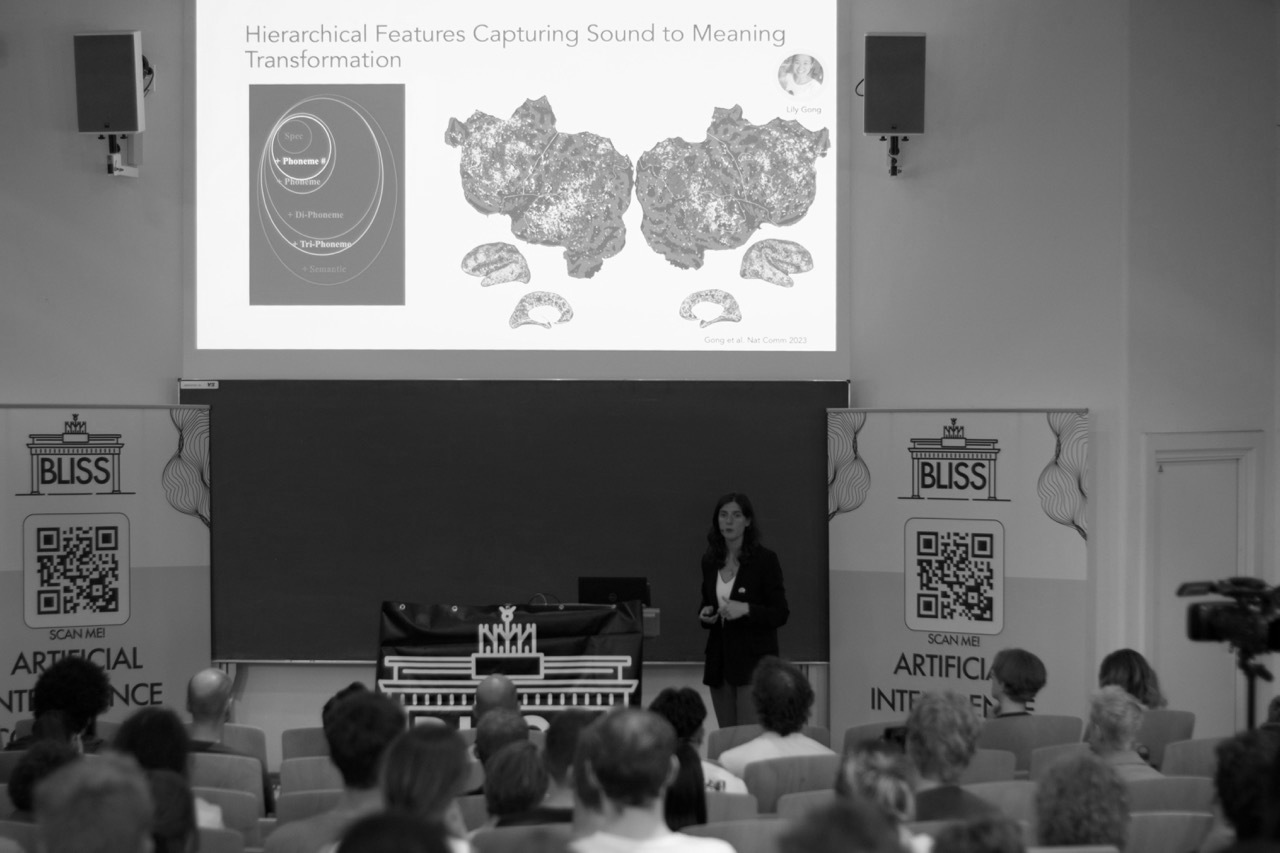
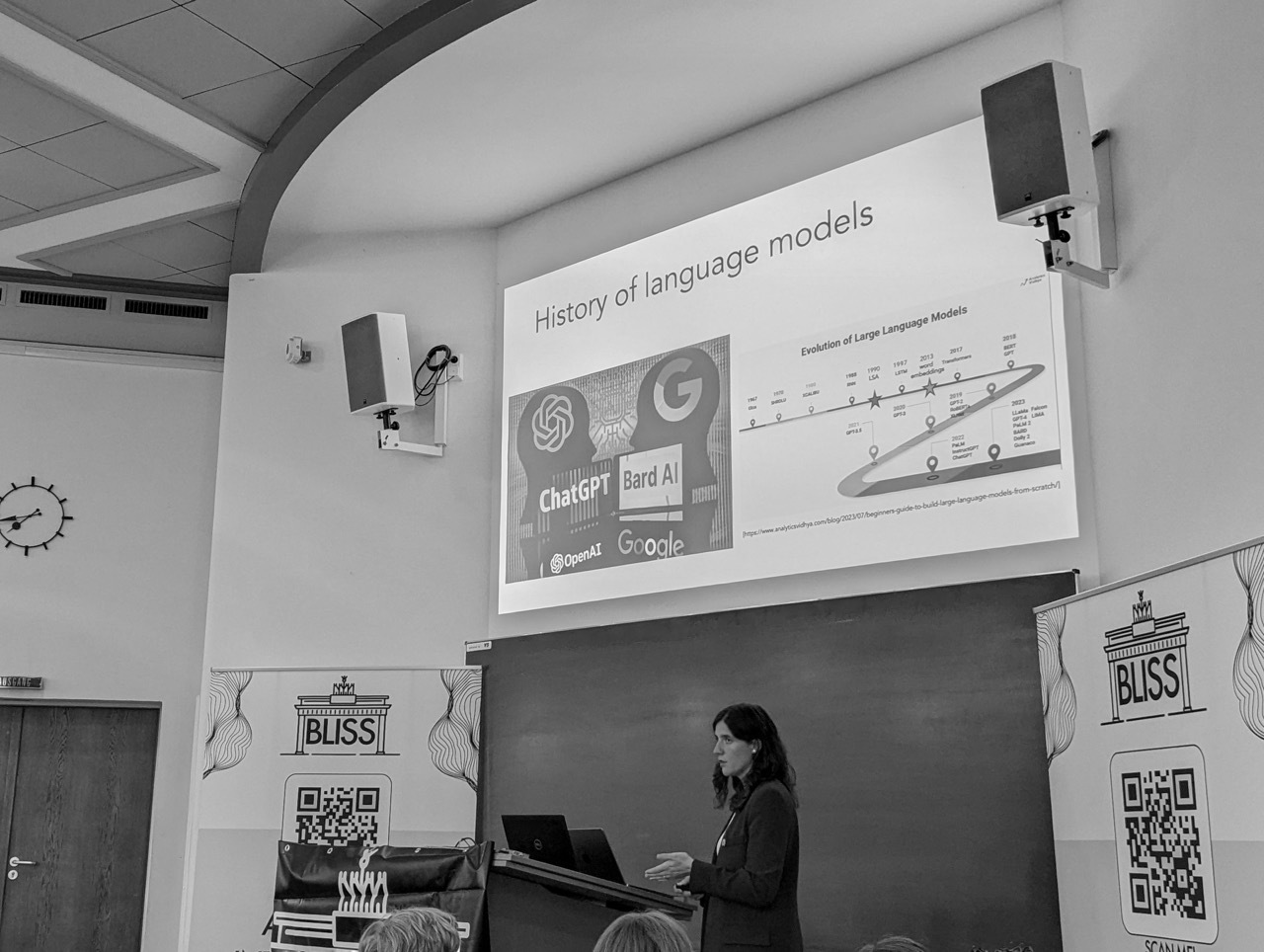
By Malte Ostendorff (DFKI)
Date: May 14, 2024
Malte Ostendorff is researcher at the German Research Center for Artificial Intelligence (DFKI) and did his PhD in the Scientific Information Analytics group at the University of Göttingen, supervised by Prof. Bela Gipp.
“Towards Open Language Models for Europe,” outlines the technical, legal, and organizational challenges of building open, multilingual large language models in academia, emphasizing the need for European data sovereignty and community-driven efforts like the Occiglot project. He advocates for open-source development, efficient training methods, and collaborative contributions to advance LLMs tailored to European languages.
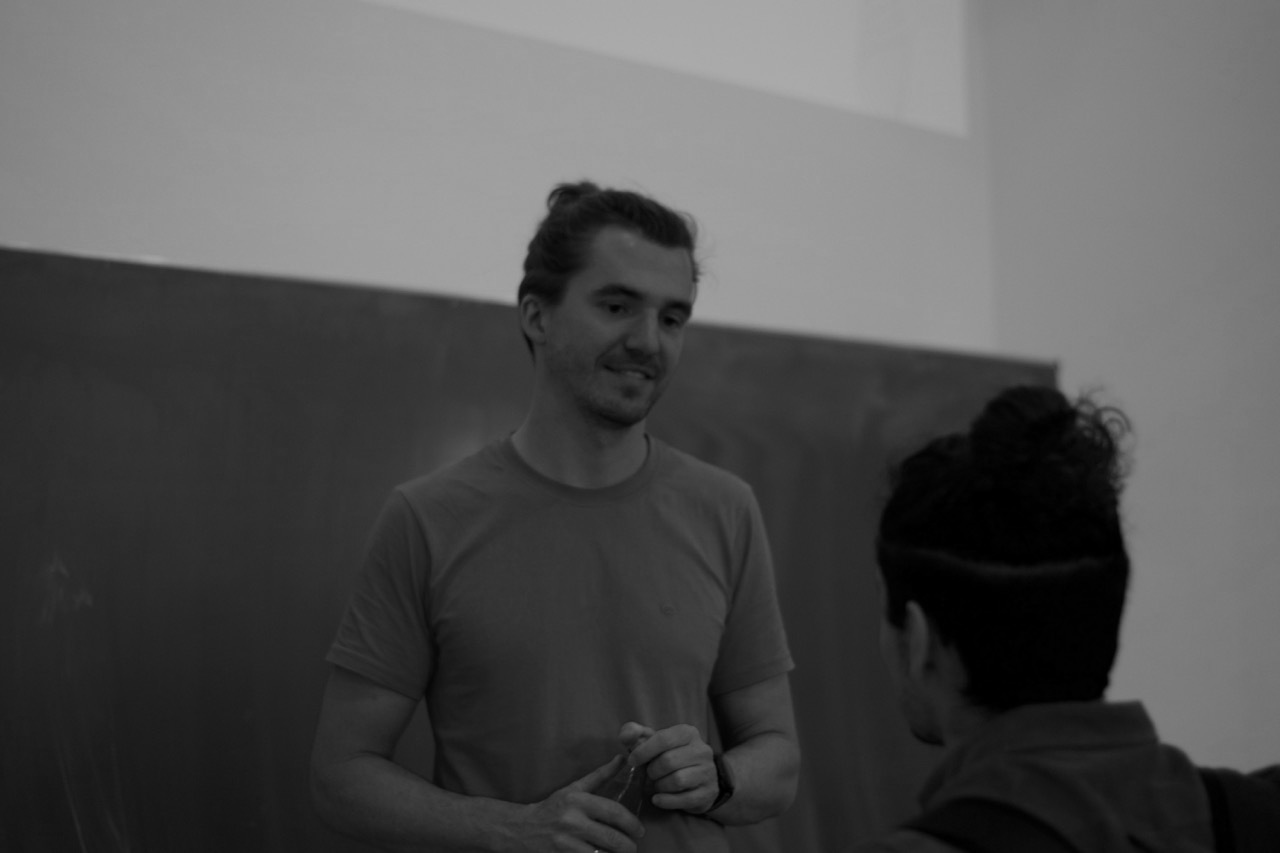
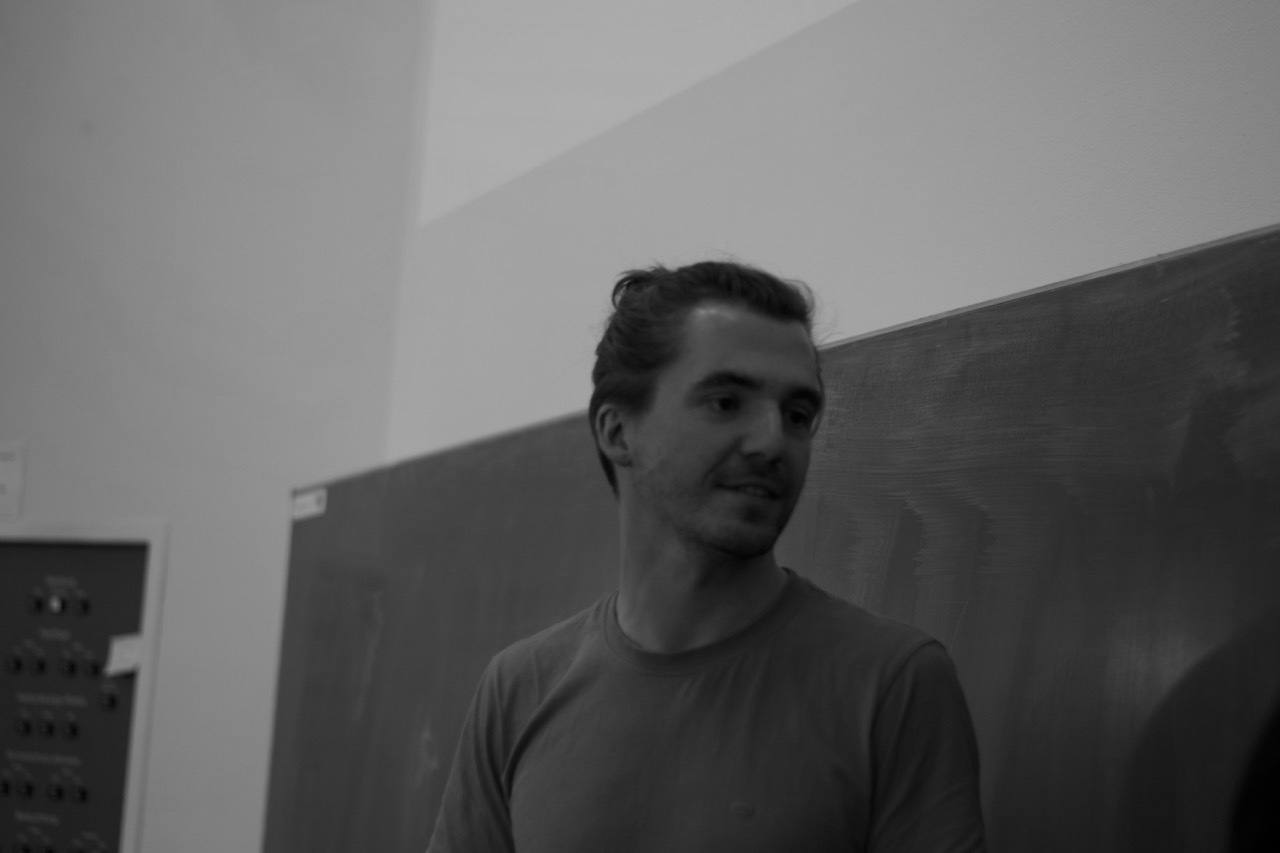

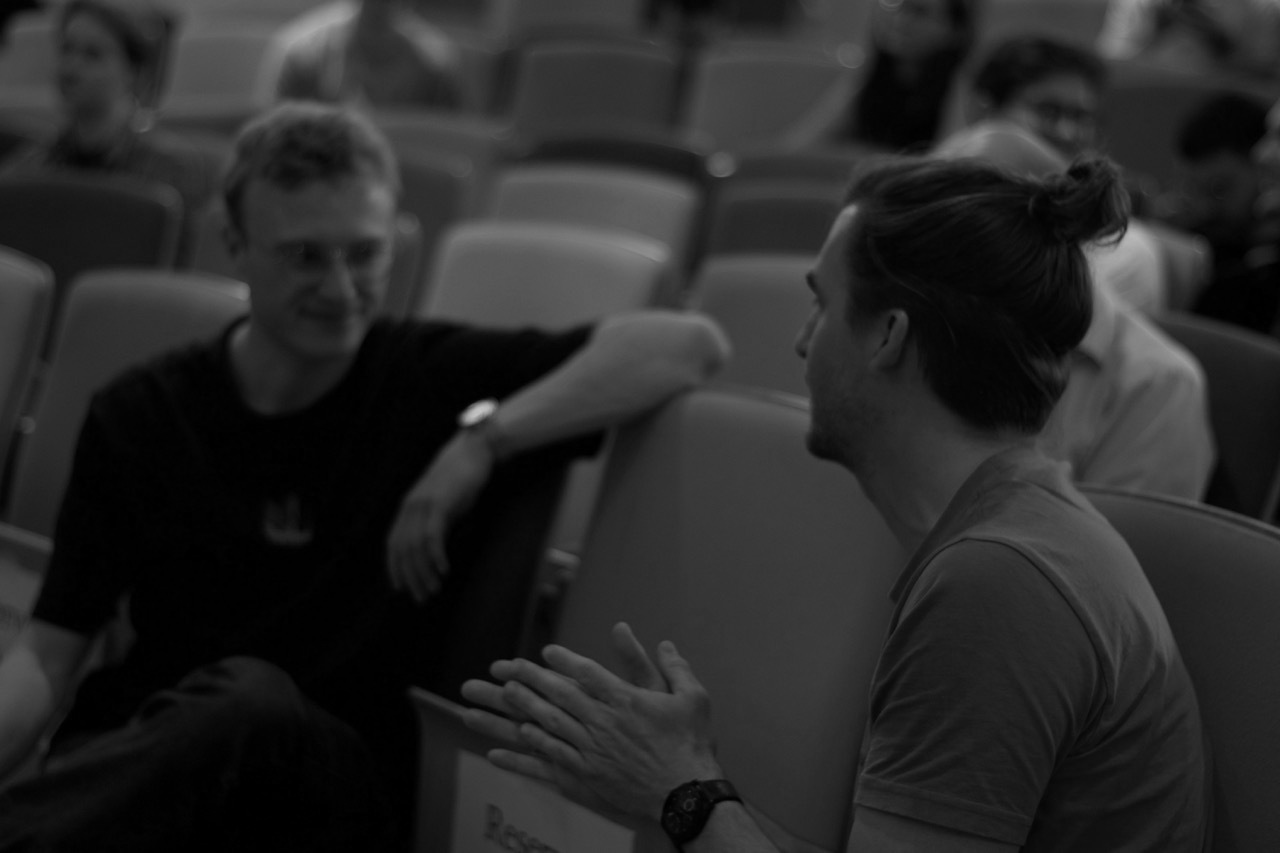
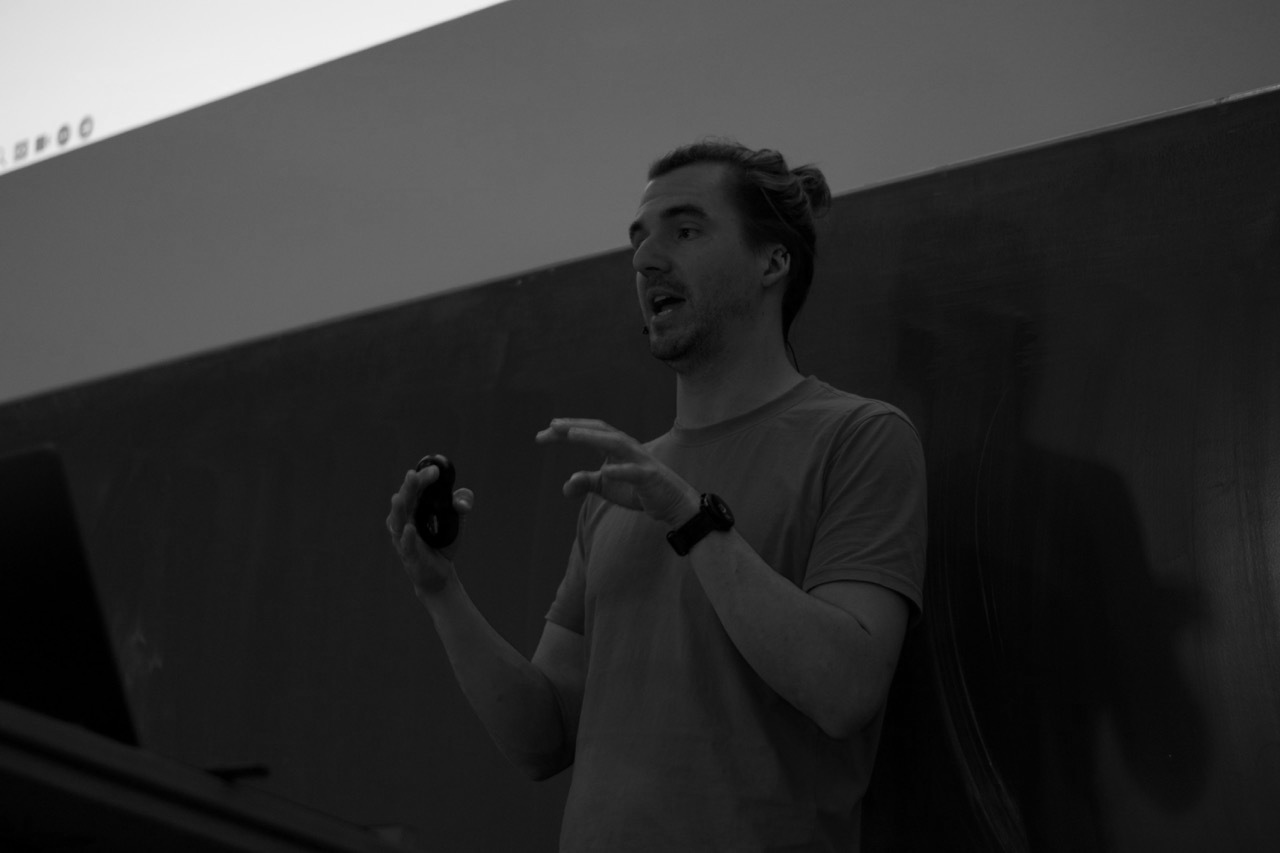
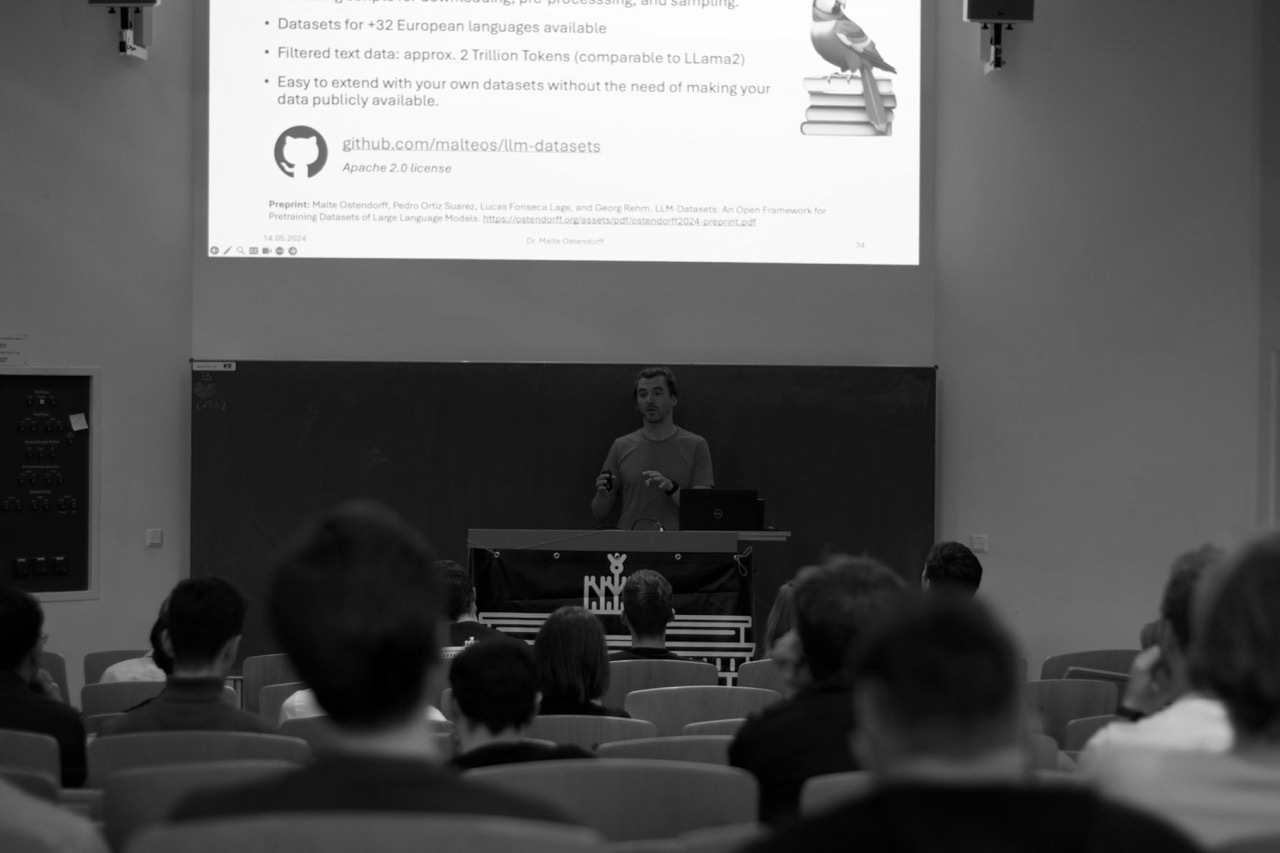
By Daniel Zügner (Microsoft AI4Science)
Date: April 30, 2024
Daniel Zügner is a senior research scientist at Microsoft AI4Science. Previously, he obtained his PhD in computer science at the Technical University of Munich, where he focused on deep learning for graphs and robustness of deep learning.
The proposed diffusion graph neural network leverages typical properties of materials to efficiently and reliably suggest new stable compounds. Additionally, the model uses masked diffusion to generate atom types, further enhancing its predictive capabilities. The approach also supports conditional generation, allowing for the creation of materials with specific properties, such as band gap or bulk modulus. The results are compared against those obtained from density functional theory (DFT)-based workflows, demonstrating the model's effectiveness.
By Thomas Unterthiner (Google DeepMind)
Date: April 16, 2024
Thomas Unterthiner is a senior research engineer at Google DeepMind. He obtained his PhD in computer science at the Johannes Kepler University Linz, where he worked on several topics in computer vision and bioinformatics.
This presentation focuses on a novel approach called OKO (odd-k-out learning), which aims to enhance the accuracy and calibration of machine learning models. OKO is a user-friendly method that improves model performance by modifying how data points are sampled during training and adjusting the computation of cross-entropy. This principled set learning approach is designed to help machine learning models provide predictions that are not only accurate but also well-balanced and reliable. The talk delves into the technical aspects of OKO and demonstrate its practical applications in improving model calibration and accuracy.
